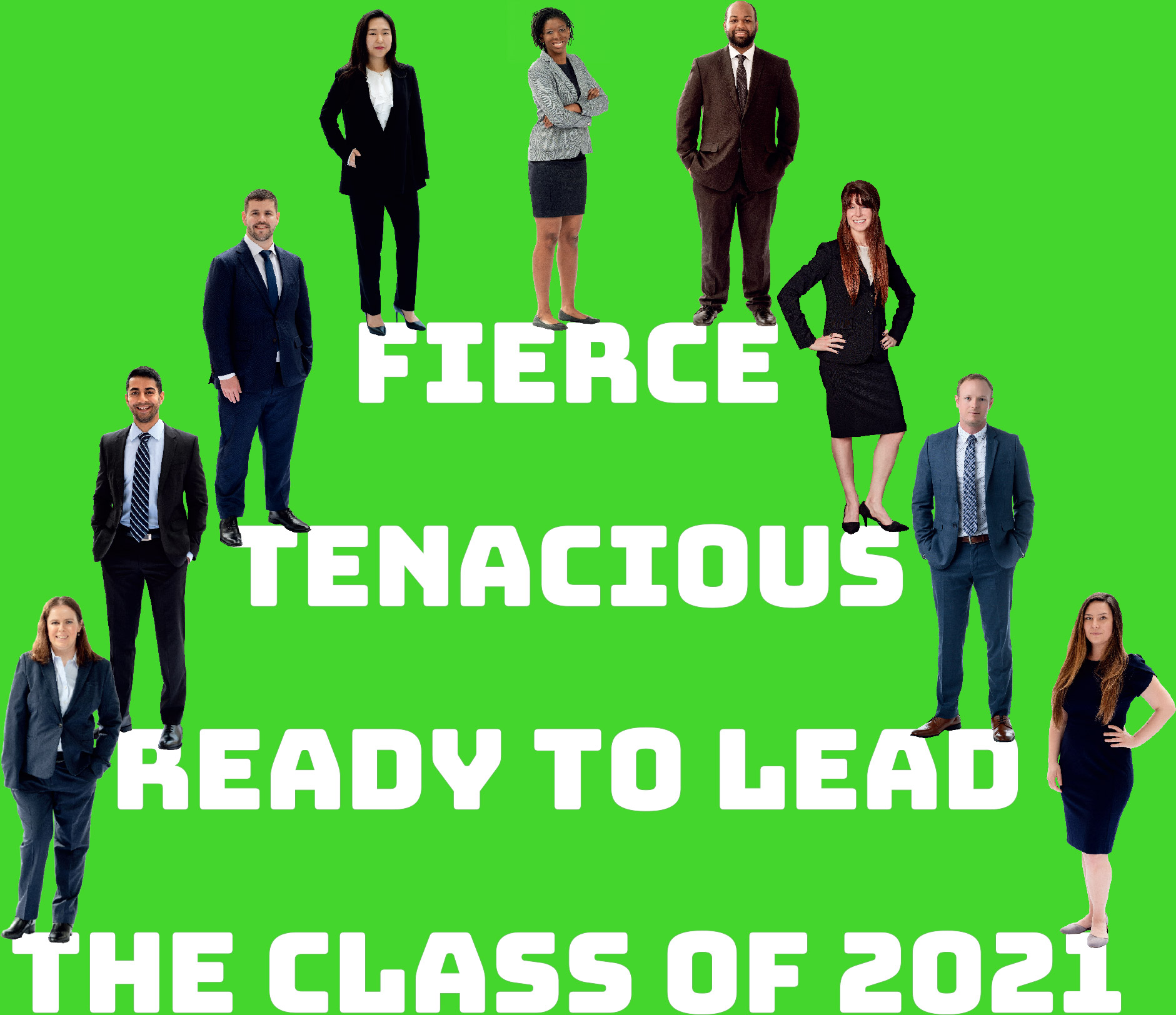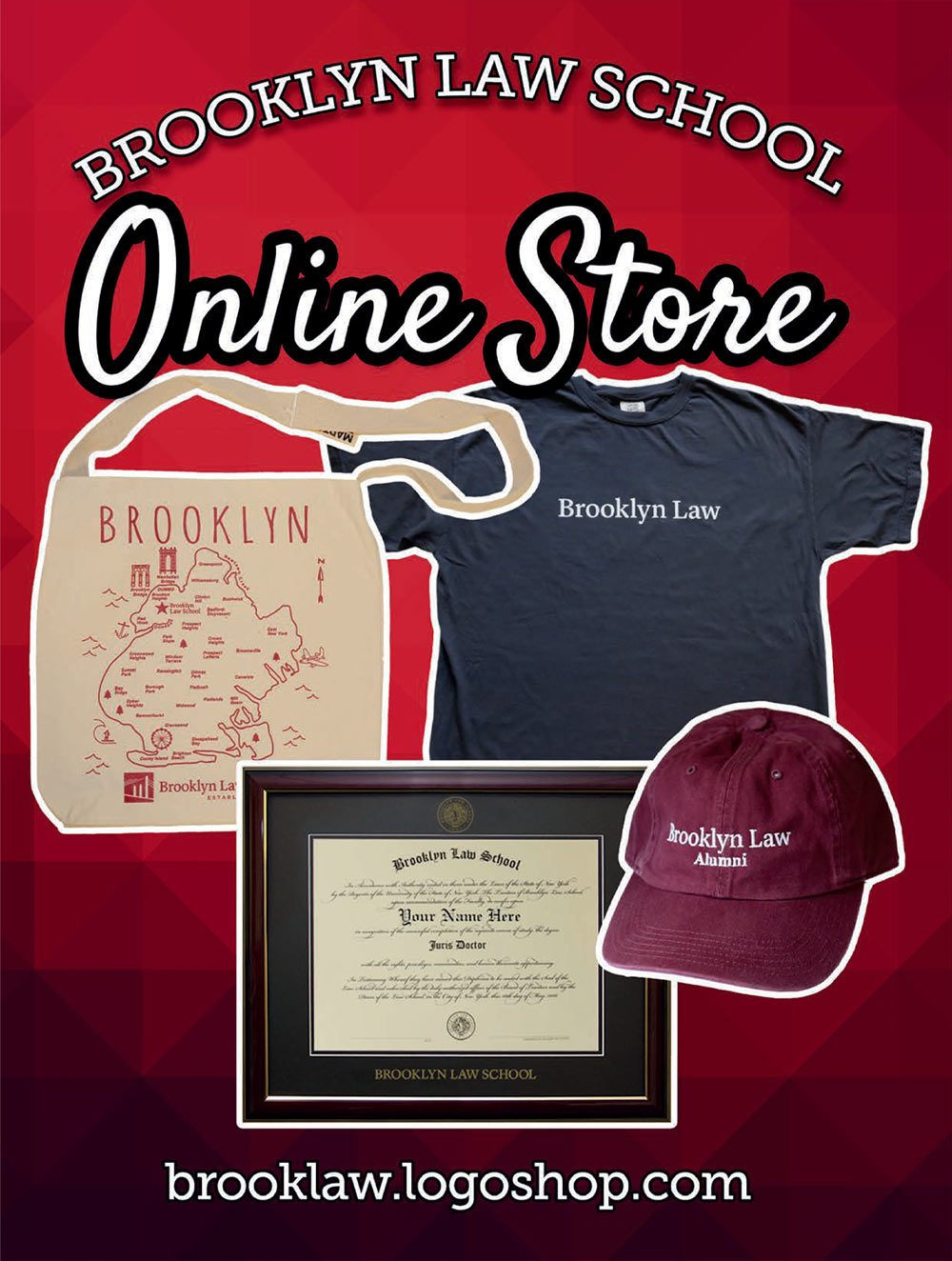Annual Fund
- Strengthen scholarships and financial aid programs
- Support student organizations
- Expand our faculty and support their nationally recognized scholarship
- Maintain our facilities
- Plan for the future of the Law School
Annual Fund
- Strengthen scholarships and financial aid programs
- Support student organizations
- Expand our faculty and support their nationally recognized scholarship
- Maintain our facilities
- Plan for the future of the Law School
Executive Director of Communications
Rosemarie Yu
Nanette Maxim
Caitlin Monck ’02
Todd McVey
Michael Meyer
Natalie Roberson
Conor Sullivan
Brooklyn Law School
250 Joralemon Street
Brooklyn, NY 11201
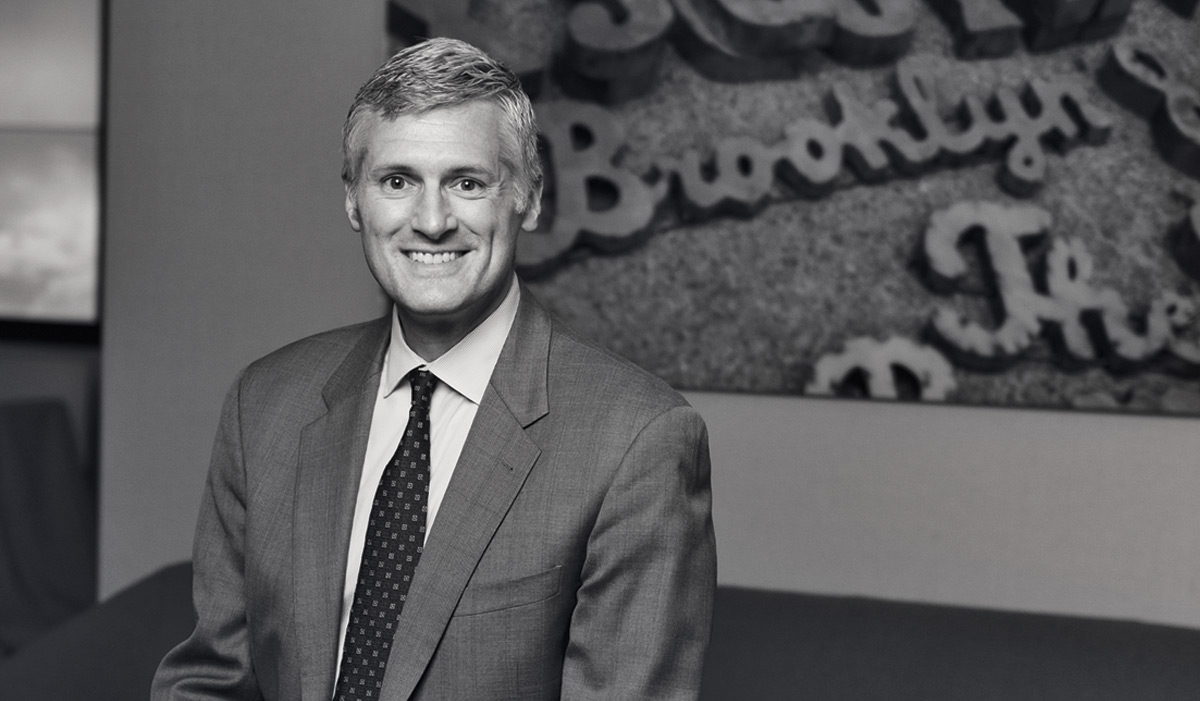
URING THIS LAST YEAR-PLUS of the COVID-19 pandemic, life often has seemed to transpire in a perpetual present, in which time has little meaning. So many of us labor just to plod through each day to get to the next, which will mostly resemble the previous day and the day to follow. One could start to feel like Bill Murray in Groundhog Day, or, to reach further back, like Macbeth: “Tomorrow, and tomorrow, and tomorrow / Creeps in this petty pace from day to day.” Sounds about right.
Yet, with the arrival of spring, and some signs that the tide of the pandemic is finally turning, it seems there is once again occasion for us to lift up our gaze and look forward. As this issue of Brooklyn Law Notes emphasizes, the future is well on its way. Here at the Law School, we’re ready for it, and helping others prepare for what lies ahead.
I often think of my faculty colleague Frank Pasquale as an emissary from the future, sent here to advise us on what our modern tools for gathering and analyzing massive quantities of data might do for us, and to warn us about what they might do to us. He is among the leading contemporary scholars thinking through the complex relations between science and law to ensure that humans can exploit the uses of technology while preventing the use of technology to exploit humans. The excerpt from his important new book, New Laws of Robotics, featured in this issue, offers his vision of how we might navigate these important issues in a productive and ethical way.

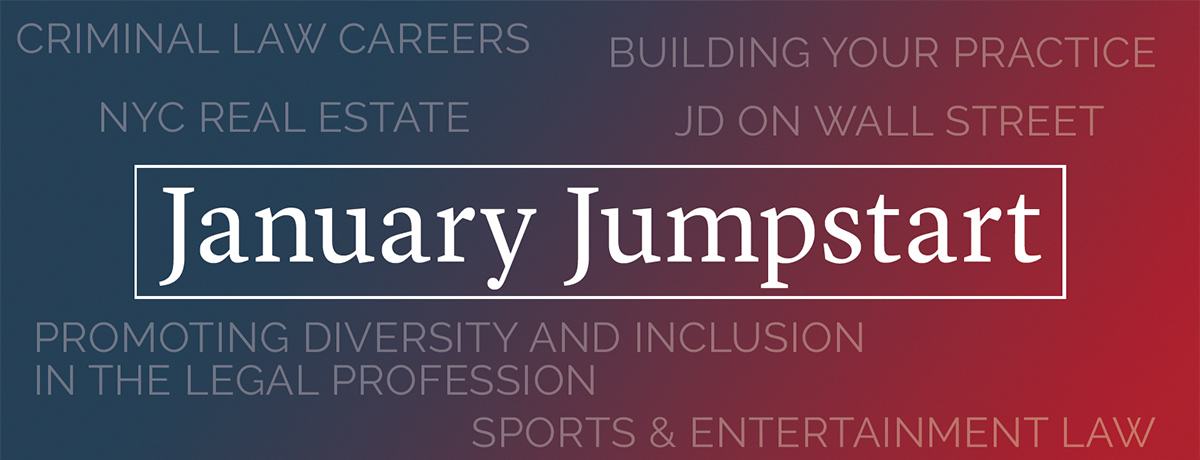
MORE THAN 200 alumni, students, and faculty convened online over winter break for the inaugural January Jumpstart career development program. The three-day program featured engaging conversations with alumni leaders and faculty on breaking into the legal job market and seizing opportunities to advance professionally. The sessions explored an array of topics, including careers in intellectual property law, health law, criminal law, entertainment, and finance, and featured panels on clerkships, entrepreneurship, and attorney well-being. Breakout groups gave students and alumni an additional opportunity to obtain career mentoring.
The program culminated with the panel “Promoting Diversity and Inclusion in the Legal Profession,” led by Dean Cahill and featuring David Djaha ’88, managing partner at Ropes & Gray; Gloria Greco ’98, global wealth and investment management compliance and operational risk executive at Bank of America; and Alphonzo Grant ’98, managing director of the legal and compliance division in the global litigation group at Morgan Stanley.
“Concrete quantitative goals are an important part of any diversity and inclusion initiative,” said Grant. “On Wall Street, you learn that the numbers are the fundamental essence of how you track success. You need to, as a team, set a target, and then have a conversation on how you are going to reach those goals.”
Concurrently, the Career Development Center ran a mock interview program, giving students experience speaking to alumni employers, who offered advice for navigating a virtual interview.
For a list of all the alumni panelists, go to www.brooklaw.edu/jumpstart
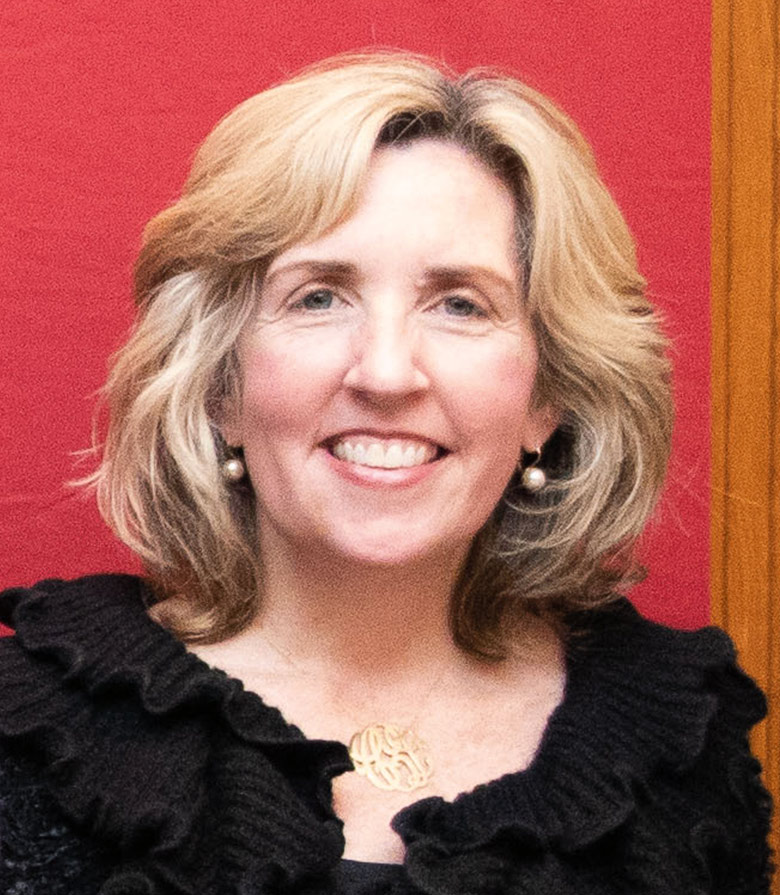
Reforming the curriculum is one of the key efforts initiated by the faculty after the adoption of its anti-bias resolution in August 2020. In the resolution, the faculty acknowledged that “as educators, we must learn and grow as we ask our students to learn and grow. Being antiracist must be an active, daily pursuit.”
“We are thinking about how we can actively change our society to end systemic racism,” said Maryellen Fullerton, the Suzanne J. and Norman Miles Professor of Law, who chairs the Curriculum Committee. “We need to do this, both as a faculty and as students who will soon be members of the bar.”
Herman, who was named the inaugural Ruth Bader Ginsburg Professor of Law in October, reflected on the late justice’s legacy. “Justice Ginsburg [was] the fifth vote in a range of highly important cases,” she said to the audience of students, faculty, and staff gathered online. “There’s reason to wonder how the changing composition of the Court will affect the law in many areas.”
Araiza spoke of how the recent shift on the Court, with Justice Amy Coney Barrett taking Ginsburg’s place, would have a generational impact. “We really are on the precipice of a potential major change in the Court’s direction,” he said. “It’ll be fascinating to see, and quite impactful on both your careers and your lives.”
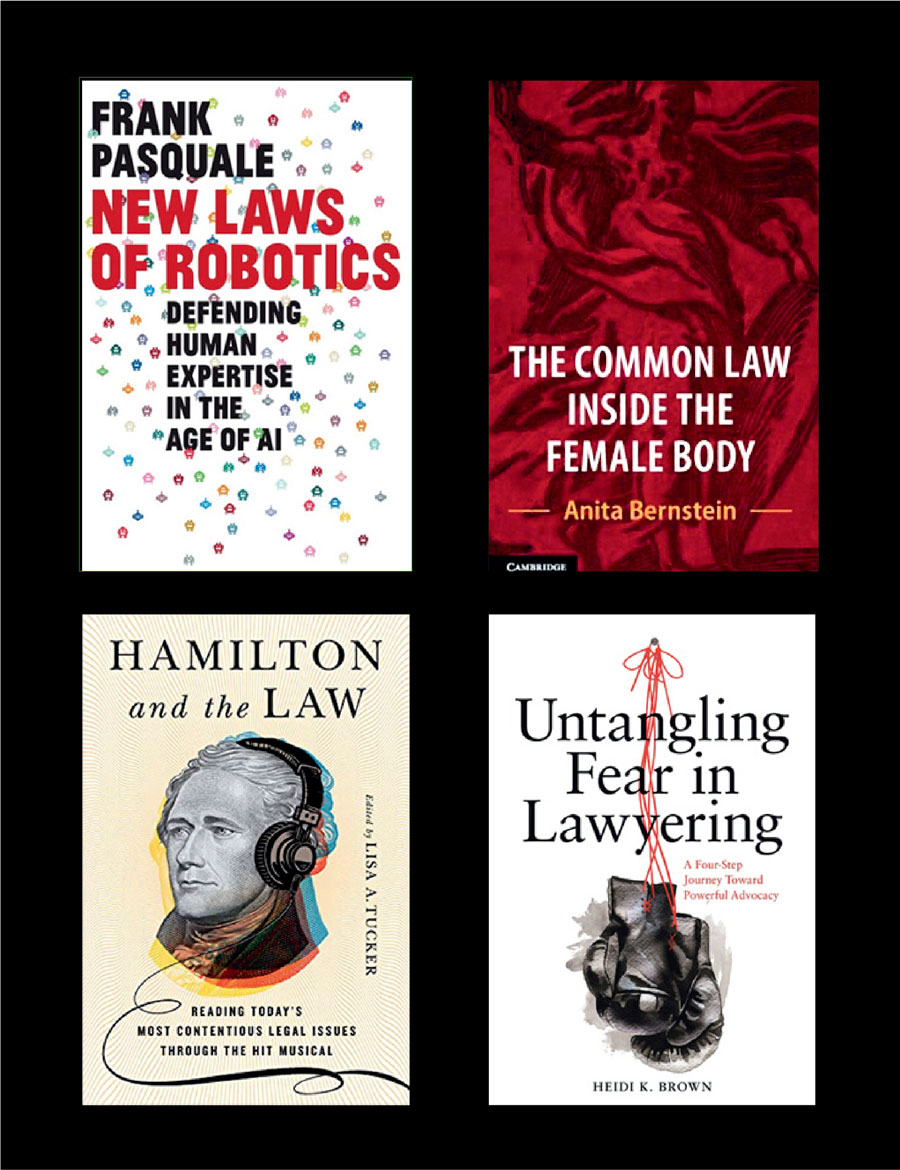
Brooklyn Law School hosted the panel “Technology’s Past and Future: The Need for Justice and Insight,” a discussion of the intersection of law and technology, moderated by Vice Dean Christina Mulligan, and featuring Professor Frank Pasquale. They were joined by Charlton McIlwain, vice provost and professor of media, culture, and communication at New York University, and award-winning author Joanne McNeil. They explored how the development of algorithms and artificial intelligence has changed everyone’s daily lives. (Read an excerpt of Pasquale’s new book, New Laws of Robotics: Defending Human Expertise in the Age of AI [Harvard University Press, 2020] in this issue.)
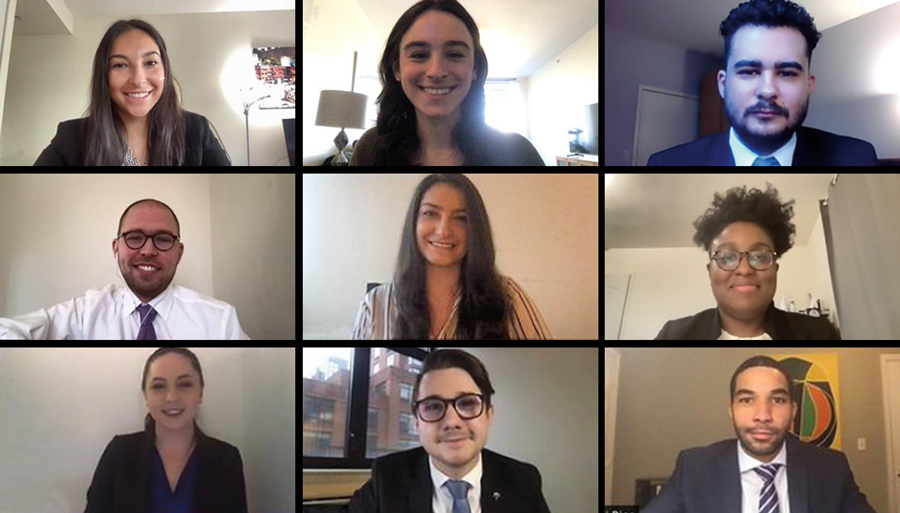
“We wanted to create an opportunity for students and practitioners to come together and talk about what law in practice looks like and to create a sense of community during this difficult time,” said Nair. “The conversations that resulted were thought-provoking and stimulating.”
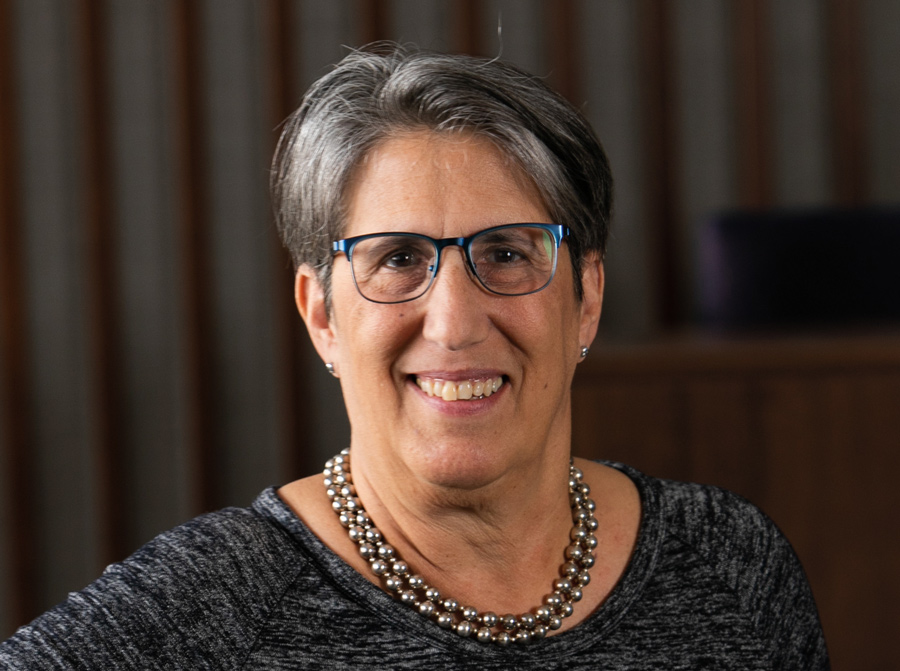
Navigating Unemployment Insurance and Back-to-Work Issues
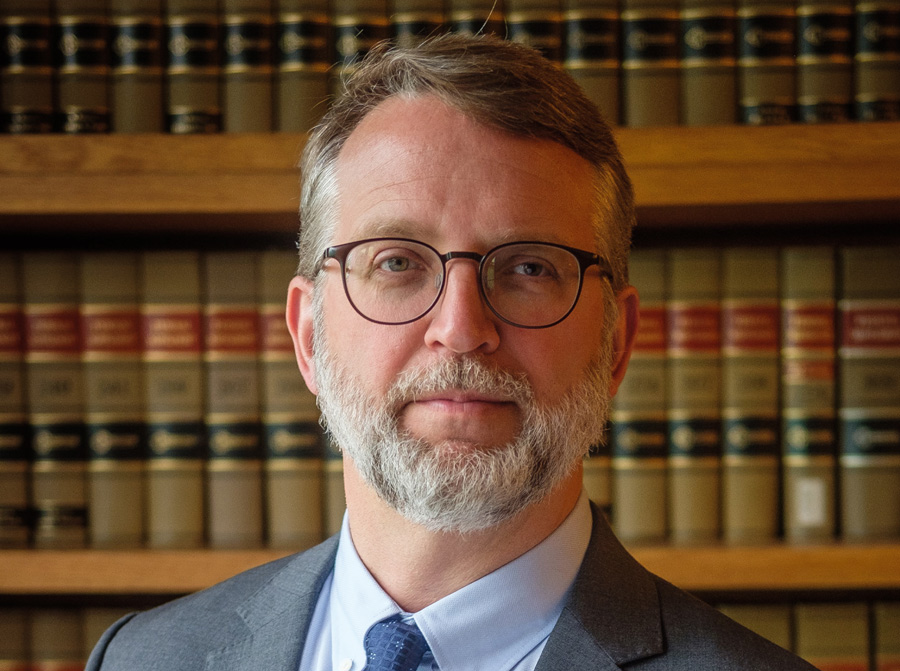
How to Incorporate a New York Not-for-Profit Corporation
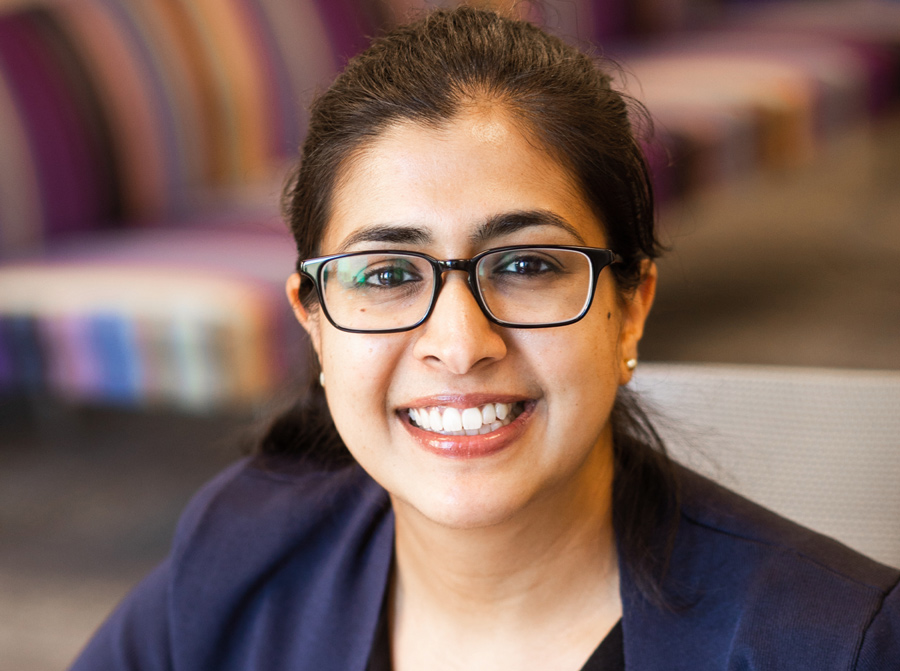
Disrupting Myths about Disability and Incarceration
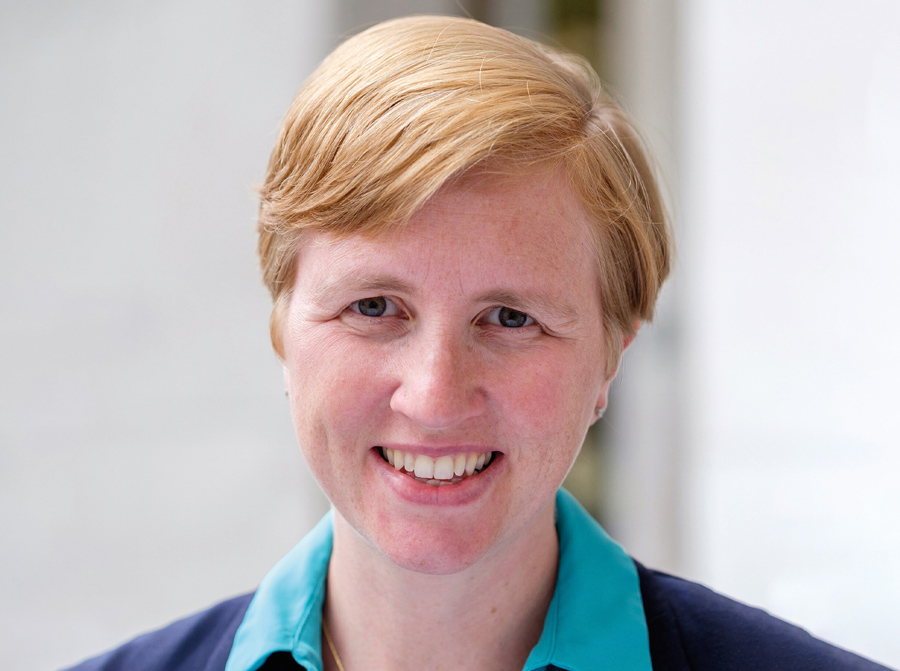
Recent Changes to LGBTQ Parents’ Rights in New York State
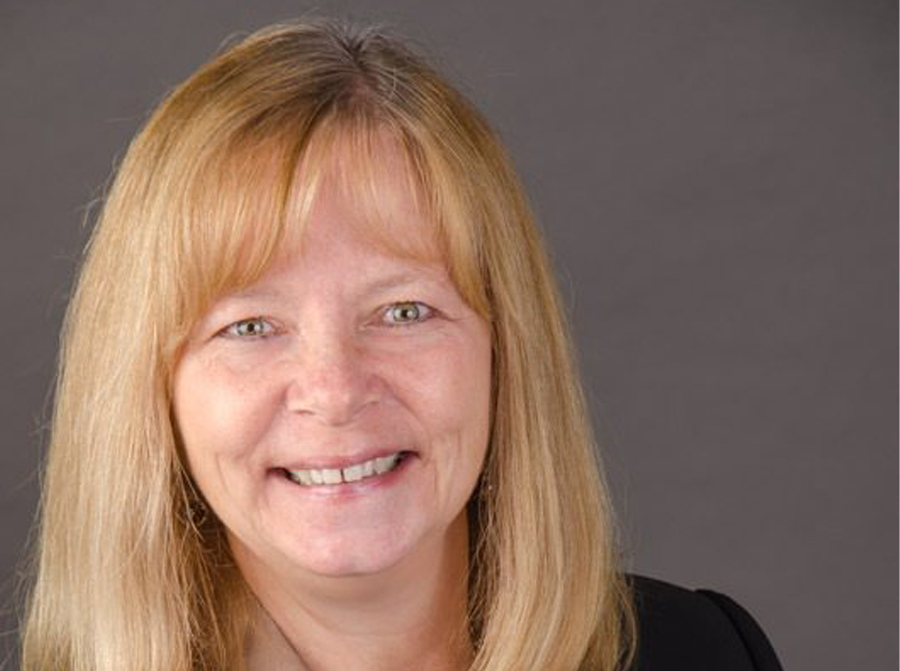
Co-op and Land Trust Structures for Affordable Housing
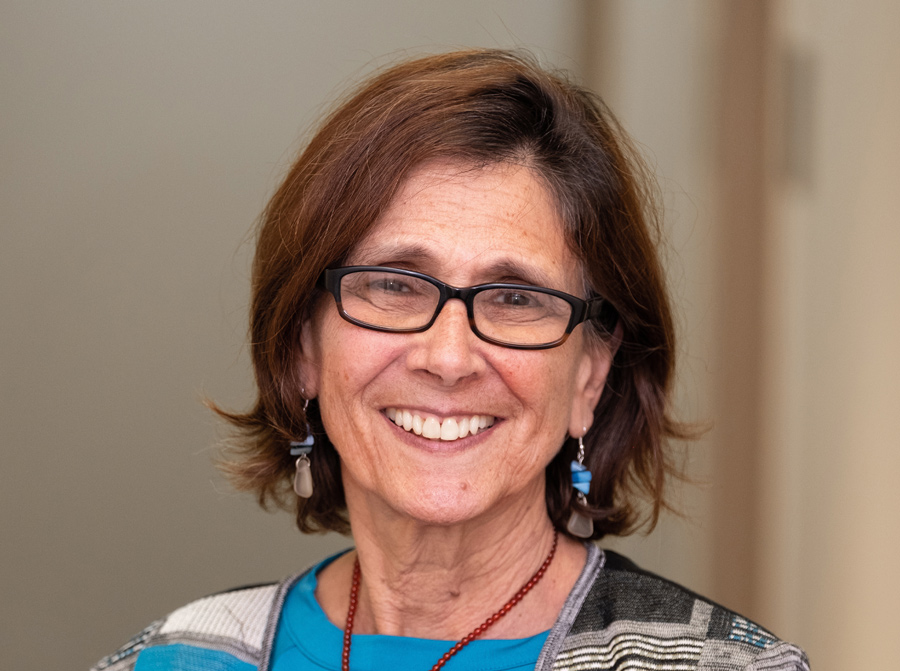
Post-Election Prospects for Immigration Law
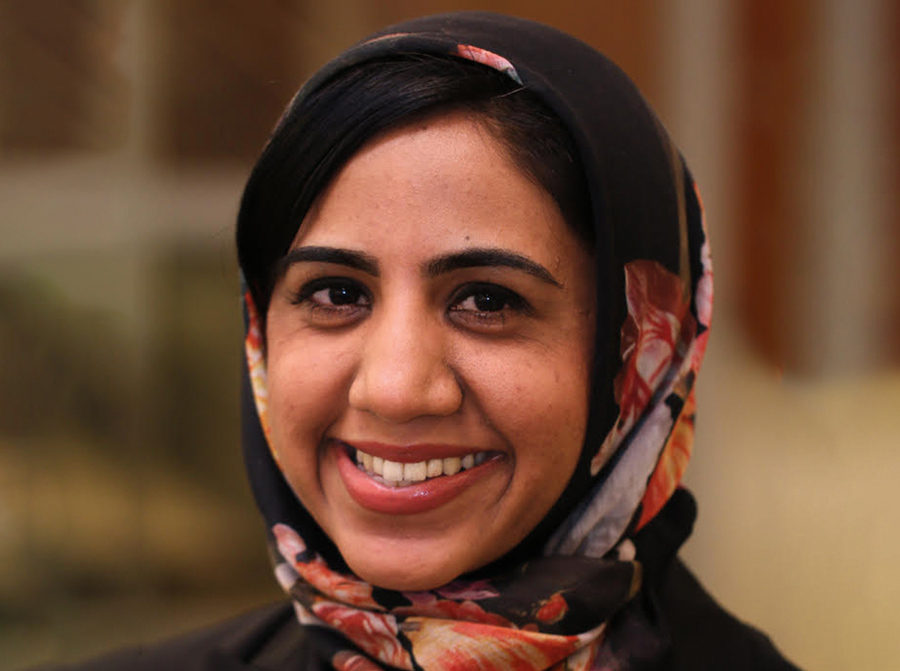
Detention and Separation of Immigrant Children and Families
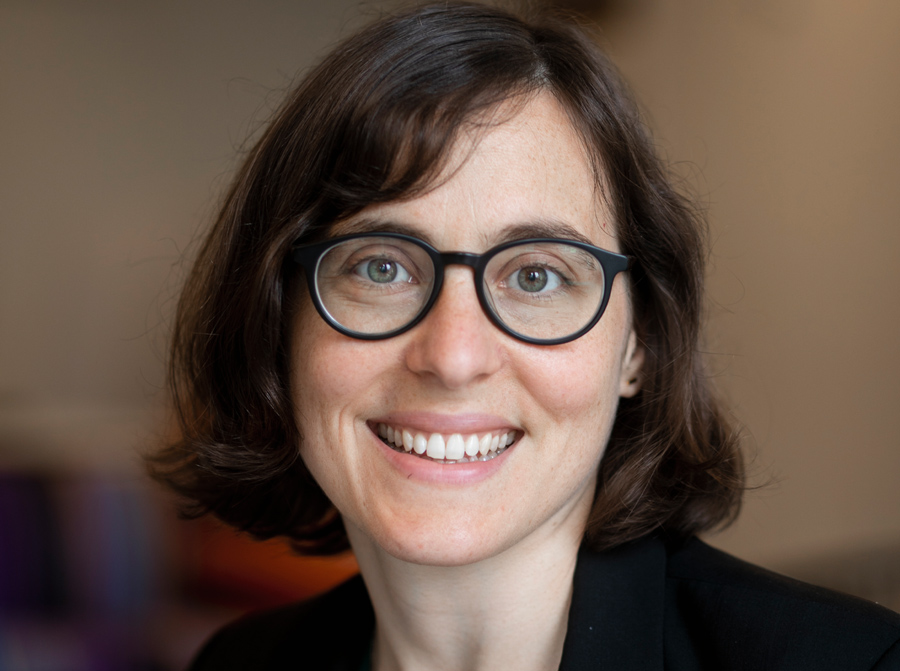
Exploring Racism and Ableism in Child Welfare
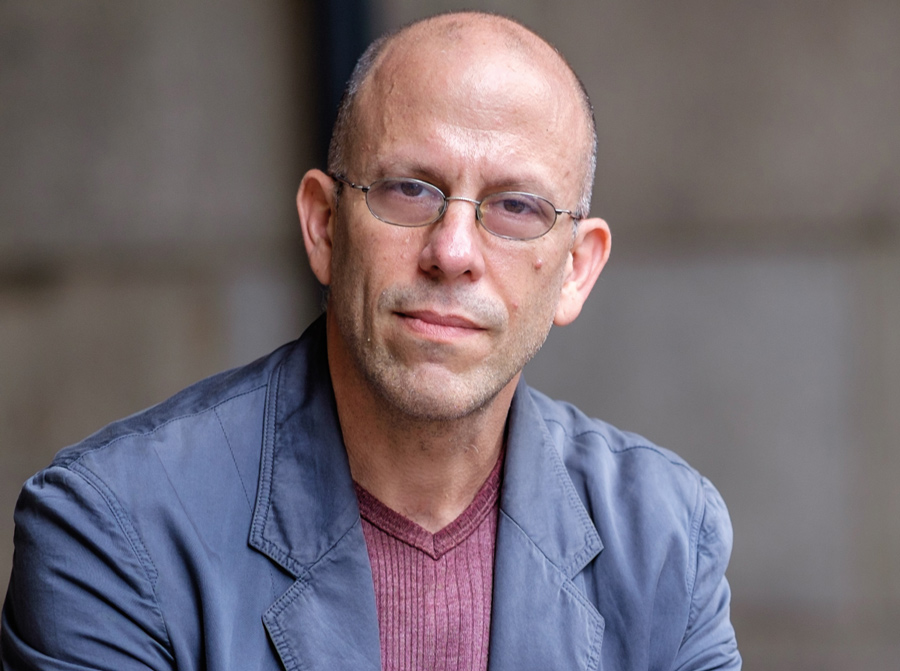
Representing Bootstrapped Startups
“We wanted to create an opportunity for students and practitioners to come together and talk about what law in practice looks like and to create a sense of community during this difficult time,” said Nair. “The conversations that resulted were thought-provoking and stimulating.”
After TWO and a Half years of representation by the Corporate and Real Estate Clinic, a 41-unit building in Williamsburg owned mostly by low-income tenants closed on a $2.2 million loan through the City’s Green Housing Program in December 2020. The loan will finance energy efficiency improvements and needed upgrades, including a new roof and windows, solar panels, and facade repairs.
Under the supervision of the clinic’s director, Professor Debra Bechtel, students Brian Brown ’21, Melissa Cifone ’21, Huyen Dang ’21, and Austin Manna ’21 negotiated a complex deal involving three separate government loans. At the closing, the City of New York was represented by Michael Chau ’00. Stewart Title Company, where Alumni Board member Tim Oberweger ’05 is a vice president, insured the property title.
The clinic initially became involved in the Williamsburg project when students began advising the tenants about co-op conversion options, pursuing a real estate tax exemption, assisting with a predevelopment loan, and satisfying mortgages. The student teams on the project included Briana Stapleton ’19, Brenda Slochowsky ’19, Sarah Zehentner ’21, Jaime Dinan ’20, Michael Nasheweit ’20, John Caruso ’19, Yu Xie ’20, and Nicole Ventura ’20.
“I’m so proud of the dedicated efforts of our clinical students, both past and present,” said Bechtel. “The pandemic has posed many challenges as well as created great need for our services, and our students have met the challenges head on.”

Amid the excitement and anxiety of the U.S. presidential election, the annual Sparer Forum in September brought together election law experts and activists to discuss the major issues and challenges facing voters in November. The forum, hosted by the Edward V. Sparer Public Interest Law Fellowship Program, focused on how structural barriers to voting and systemic disenfranchisement of minority and other marginalized communities have limited local, state, and federal democracy, and discussed the work that will be needed to move forward.
The panelists included Professor Wilfred U. Codrington III; Christina Asbee, director of assistive technology and voter access programs at Disability Rights New York; and Jan Combopiano, deputy director at Worth Rises, a nonprofit criminal justice advocacy organization.
“This year, we celebrate 100 years since the ratification of the 19th Amendment, and 55 years since the passage of the Voting Rights Act,” said Codrington. “These were profound manifestations of democracy in action, but we still have a lot of work to do before we can make good on their promises of broad inclusion and equality and have a government of, by, and for all of the people.”
The panel was moderated by Professor Cynthia Godsoe, director of the Sparer program, and Sparer Fellow Meredith Wiles ’22. Godsoe organized the event with Sparer Fellowship Committee members Codrington and Professor Prianka Nair, co-director of the Disability and Civil Rights Clinic.
In November 2020, the Center for the Study of Business Law and Regulation and the Brooklyn Journal of Corporate, Financial & Commercial Law hosted the virtual symposium Consumer Welfare, Market Structure, and Political Power. At the two-day event, legal scholars explored how internet platforms, online lenders, and other powerful market players influence the law of consumer contracting, product liability, antitrust, and civil procedure, and affect people’s daily lives.
Topics covered by the presenters included forced arbitration in consumer contracts, fintech and consumer credit, Amazon’s role as a warrantor of items sold by third-party sellers, the failure of the economic measurements of consumer welfare in antitrust, and the history of state law class actions.
The symposium was organized by center co-director Associate Dean Edward Janger, with Professors Frank Pasquale and Aaron Twerski among those who presented papers. At the conclusion of the program, Janger and Professor K. Sabeel Rahman joined a roundtable discussion tying together the common themes found across the presentations.
The symposium participants included scholars from U.C. Berkeley School of Law, Georgetown University Law Center, Indiana University Maurer School of Law, Loyola University of Chicago School of Law, and Fordham Law School, and a founding principal from the law firm Gupta Wessler.
In the wake of one of the largest protest movements in United States history last summer, the Center for Criminal Justice assembled a panel to present different perspectives on possibilities for the criminal legal system. The panel, moderated by center co-director Professor Jocelyn Simonson, grappled with the question posed in the event’s title, Is Criminal Justice Possible?
“Due to tectonic changes in our country, criminal justice is no longer a term that you can use and assume that everyone knows what you mean,” said Simonson. “This is due to social movements and uprisings, most centrally the Movement for Black Lives, as well as decades of organizing by people directly affected by the carceral state who question the notion that criminal justice is possible.”
The panelists represented many organizations working in the area, including the Brooklyn District Attorney’s Office, the Center for Justice at Columbia University, CUNY School of Law, University of Connecticut School of Law, and Freedom Agenda at the Urban Justice Center. Topics included prosecution-driven reform; anti-Black racism and racial disparities in the system; the debate between reform and abolition; and the relationship between policing, prosecution, and incarceration.
“The question of punishment is not just a matter of whether a person engaged in criminality is a suitable candidate for punishment,” said Dean Cahill, whose academic work focuses on criminal law. “It is also a question about what we need to demand from the state before we will afford it the authority to impose punishment.”
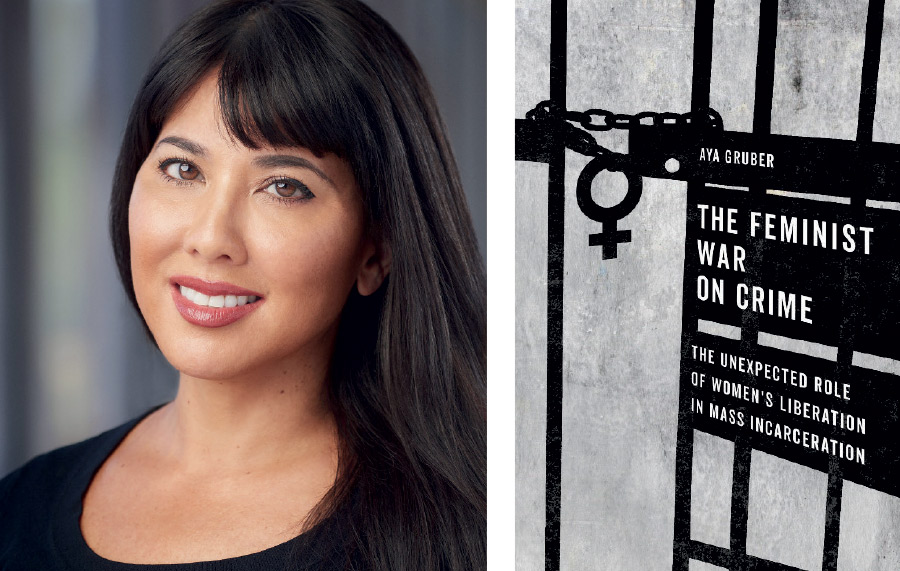
The Center for Criminal Justice hosted Aya Gruber, professor of law at the University of Colorado Law School, to discuss her recent book, The Feminist War on Crime: The Unexpected Role of Women’s Liberation in Mass Incarceration (Cambridge University Press, 2020). In her book, Gruber examines the conflict between the punitive impulse of “legal feminism” and the issue of hyper-incarceration in the United States, and, in doing so, critiques the state’s ability to combat sexual and domestic violence through law and punishment.
Kate Mogulescu, professor of clinical law and co-director of the center, moderated the discussion, calling the book “important and necessary.”
“As lawyers, we understand that our legal frames are necessarily state-centric,” said Gruber. “We should be careful about successes within that system and the strategy of reform from within. While many of the reforms proposed by feminists have made the carceral state more feminist, they certainly also made feminism more carceral.”

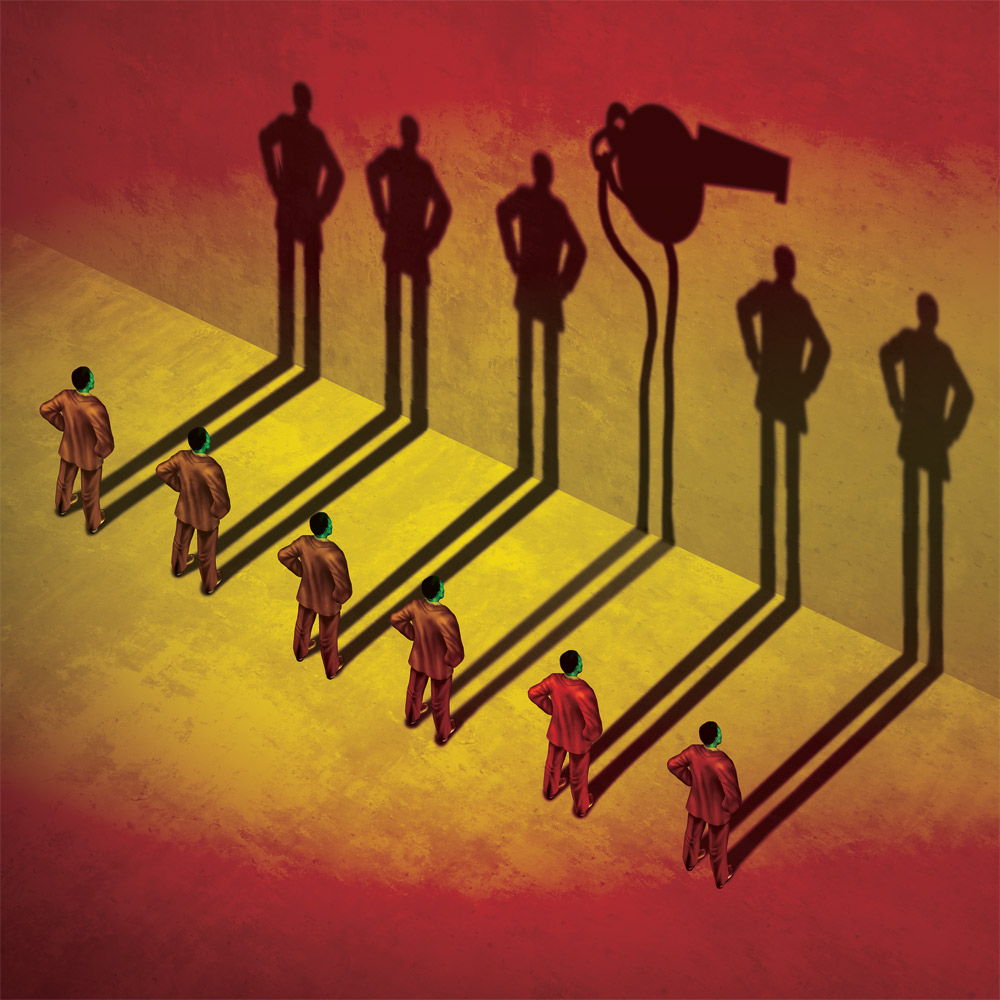

“We all like to imagine ourselves as heroes, but when the boss tells an employee to cover up wrongdoing, the mind has a great capacity to rationalize such behavior and avoid confrontation,” said Professor Miriam Baer, who organized and moderated the event. “Whistleblowing as a practice can build moral fortitude. It reminds employees of their responsibility to protect the firm from internal wrongdoers and provides them with a viable path out of an otherwise intractable puzzle.”
The panel’s wide-ranging discussion focused on corporate whistleblowing in both the United States and the European Union and explored the laws and government institutions that manage the process and the behavioral incentives to suppress or come forward with pertinent information. Among the panelists was Winston M. Paes ’03, a partner at Debevoise & Plimpton and the former chief of the Business and Securities Fraud Section at the U.S. Attorney’s Office for the Eastern District of New York.
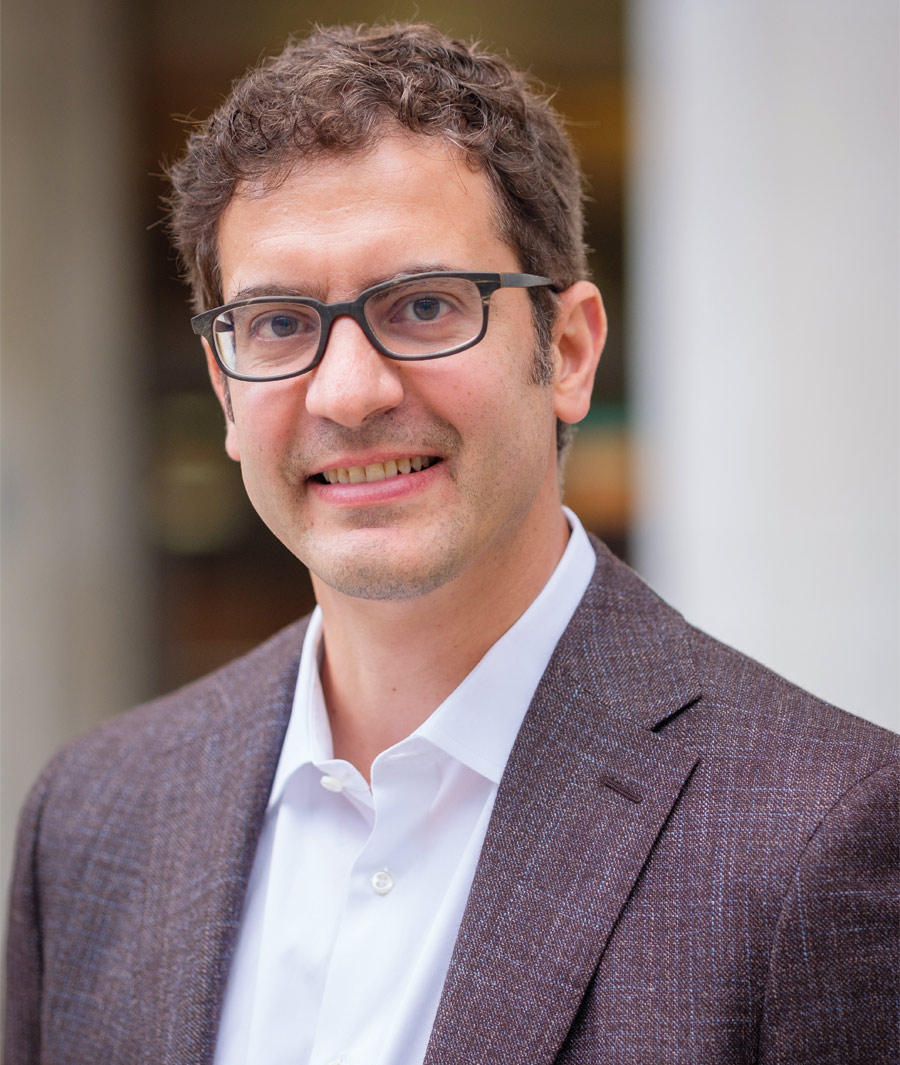

The workshop drew scholars from University of Virginia School of Law, New York University School of Law, University of Pittsburgh, Rutgers Law School, University of Alberta, Queen’s University (Canada), and Fundação Getulio Vargas Law School (Brazil). They discussed works in progress on topics including “Property and Local Knowledge,” “Resistance and Recognition in Contract,” “Procedural Wrongdoing,” and “Contract Law, State Capacity, and Inequality.” Brooklyn Law School was represented by Gold, as well as Dean Cahill, Vice Dean Christina Mulligan, and Associate Dean Edward Janger.
“I’m delighted that the conference was such a success, especially under difficult conditions,” said Gold. “The quality of papers and discussion made for a very exciting event.”
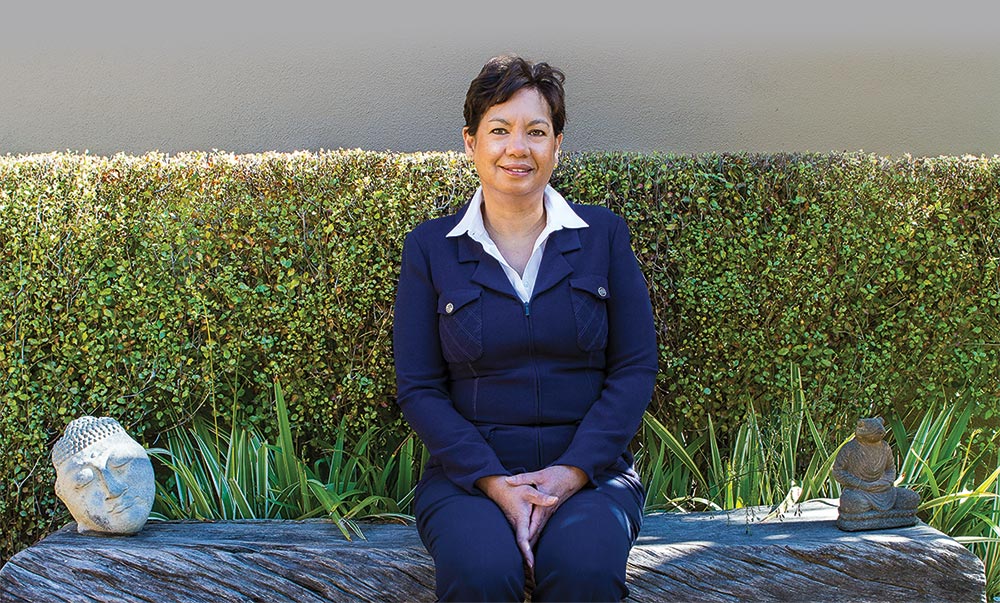
As vice president of the Law School’s chapter of the Black Law Students Association, she worked with other members to arrange the Law School’s first minority recruitment event. Given a modest budget, they bought refreshments and distributed handmade flyers promoting the event to students at local colleges. The successful event eventually grew into part of the Law School’s admissions programs and helped to increase the number of applicants from communities of color.
Today, Denson-Low continues that commitment to higher education as vice chair of the board and chair of the audit committee at RPI, and, with her husband, Ron Low, through her support for scholarships at the Law School for students from underrepresented groups.
“It was my first marathon, and I was initially dreading it,” said Low, “but the feeling of camaraderie, excitement, and energy from all the people in line, from across the world, coming together for this event, was amazing.”
Now, Low plays a crucial part in creating that energy. In 2019, after serving for several years in-house as general counsel of a restaurant hospitality company, she took on the role of vice president, general counsel, and corporate secretary at the Javits Center. In her first year, in addition to her regular duties, she dedicated time to walking the event floor and observing the employees and activities as part of learning the day-to-day business of the Javits Center. She also participated, and continues to participate, in the legal aspects of its massive expansion project, which was already underway and set to be completed in May 2021.
In March 2020, as the threat of the COVID-19 pandemic engulfed the city, the Javits Center was activated by the New York State government. Fulfilling its role as a public benefit corporation, it converted into a medical station to help relieve the building pressure on the city’s hospital system.
“It was my first marathon, and I was initially dreading it,” said Low, “but the feeling of camaraderie, excitement, and energy from all the people in line, from across the world, coming together for this event, was amazing.”
Now, Low plays a crucial part in creating that energy. In 2019, after serving for several years in-house as general counsel of a restaurant hospitality company, she took on the role of vice president, general counsel, and corporate secretary at the Javits Center. In her first year, in addition to her regular duties, she dedicated time to walking the event floor and observing the employees and activities as part of learning the day-to-day business of the Javits Center. She also participated, and continues to participate, in the legal aspects of its massive expansion project, which was already underway and set to be completed in May 2021.
In March 2020, as the threat of the COVID-19 pandemic engulfed the city, the Javits Center was activated by the New York State government. Fulfilling its role as a public benefit corporation, it converted into a medical station to help relieve the building pressure on the city’s hospital system.
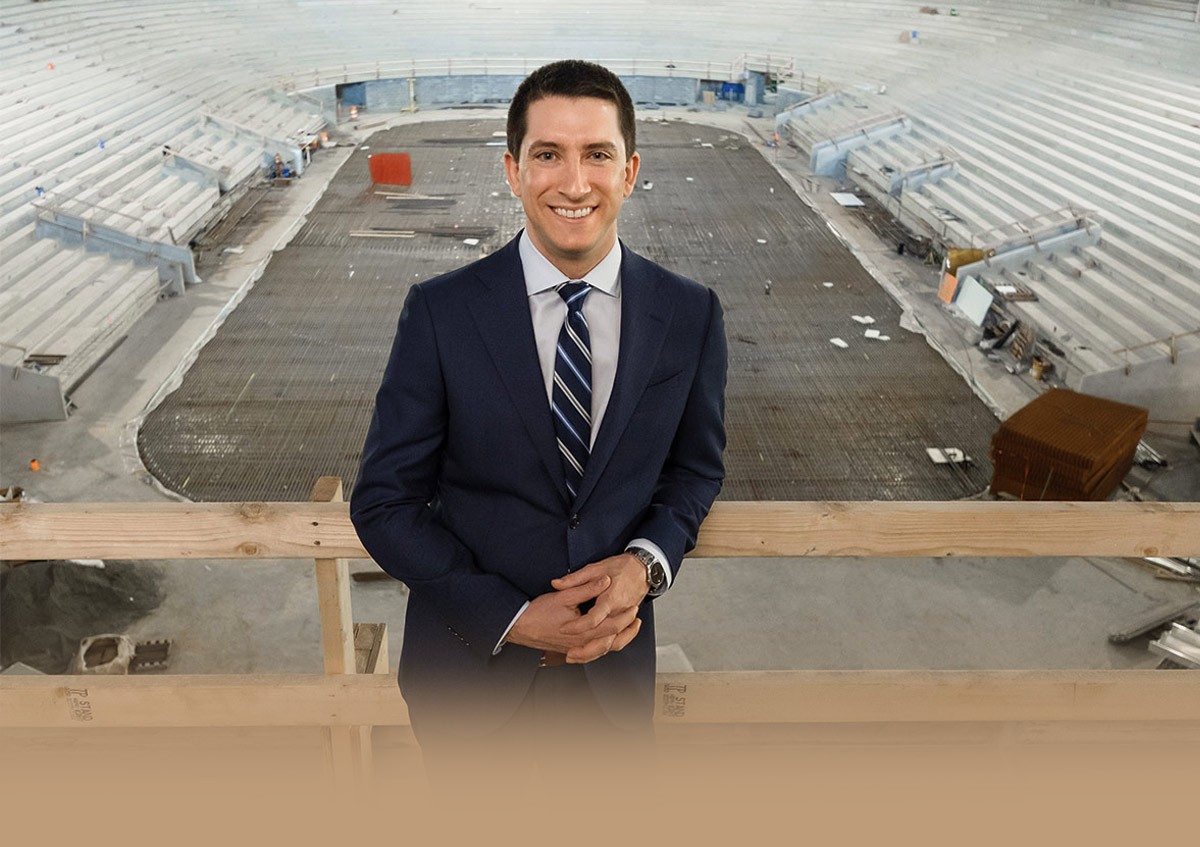
Klein’s association with the Islanders began on the other side of the negotiating table. As an associate with Pannone Lopes Devereaux & West in 2012, Klein represented Nassau County in its attempts to redevelop the Nassau Veterans Memorial Coliseum, which had hosted the team since 1972, and keep the team in the arena. After those negotiations fell apart, Klein, still representing Nassau County, was tasked with overseeing the Islanders’ departure from the Coliseum to Brooklyn’s Barclays Center.
Under new ownership in 2016, the team rededicated efforts to find a permanent home on Long Island. Rebuilding their in-house legal team with an eye toward building a new arena, the new owners asked Klein, who came highly recommended by the outgoing general counsel, to join the Islanders front office as deputy general counsel. There, Klein helped assemble the winning proposal for the Belmont Park project, which will include the UBS Arena, a 250-room hotel, and more than 300,000 square feet of destination retail space.
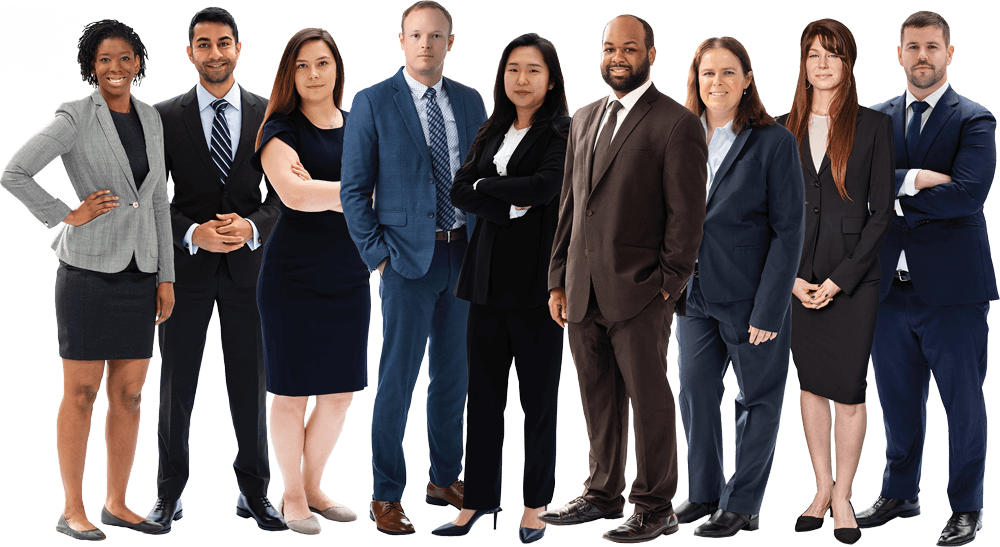


Meet nine members of the Class of 2021 who, with their ingenuity, resilience, and stellar academic achievements, are ready to join the generations of graduates who weathered history-shaking times and went on to change the world.
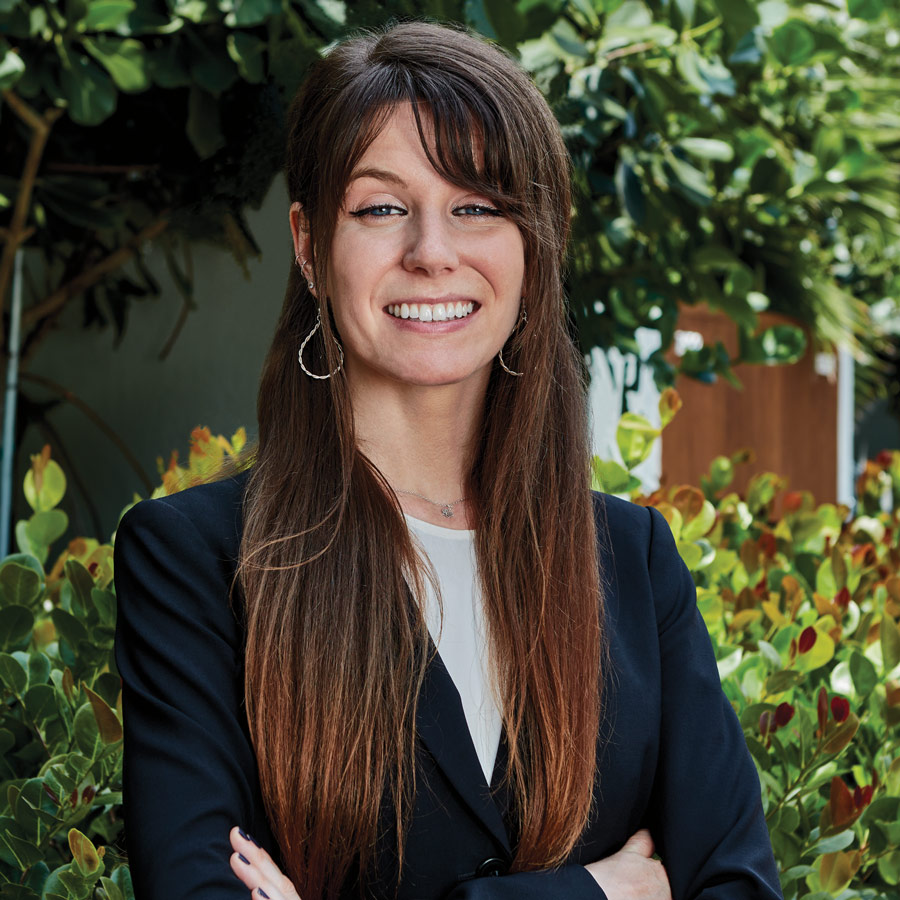

Undergrad: Bard College
Career Plans: Associate, Davis Polk & Wardwell
Activities: Brooklyn Law Incubator & Policy (BLIP) Clinic, Community Development Clinic
Internships: Blank Rome; Coinbase; NYS Supreme Court, Commercial Division
Favorite binge watch: “I’m a huge Dexter fan. I keep it on in the background too often!”
The pandemic compelled me to get creative around securing professional opportunities. Right before the pandemic hit, I went to a Wall Street Blockchain Alliance (WSBA) event at Linklaters discussing the federal regulatory landscape for crypto token offerings. It turned out that the organization was seeking help managing the efforts of more than 150 practitioners around the world. I joined them and took on that role, which gave me the opportunity to continue to explore the blockchain and digital currency space—building on my work at Blank Rome and leading to my internship at Coinbase. The rules of this nascent industry are still being developed, which calls for creative lawyering that is very interesting.
I can ascribe a lot of the opportunities that I’ve had to the connections I have made and the work that I’ve done. Finding innovative ways to develop professional relationships can further you in your career. For me, Meetup groups gave me the opportunity to connect with startup founders and learn to speak their language. But when you don’t have a Meetup group at the Brooklyn Navy Yard to go to, what are the ways that you can stay in touch with people? Don’t be afraid to send an email to somebody you know in an industry you want to enter and ask for a cup of coffee over a Zoom call. ”

The pandemic compelled me to get creative around securing professional opportunities. Right before the pandemic hit, I went to a Wall Street Blockchain Alliance (WSBA) event at Linklaters discussing the federal regulatory landscape for crypto token offerings. It turned out that the organization was seeking help managing the efforts of more than 150 practitioners around the world. I joined them and took on that role, which gave me the opportunity to continue to explore the blockchain and digital currency space—building on my work at Blank Rome and leading to my internship at Coinbase. The rules of this nascent industry are still being developed, which calls for creative lawyering that is very interesting.
I can ascribe a lot of the opportunities that I’ve had to the connections I have made and the work that I’ve done. Finding innovative ways to develop professional relationships can further you in your career. For me, Meetup groups gave me the opportunity to connect with startup founders and learn to speak their language. But when you don’t have a Meetup group at the Brooklyn Navy Yard to go to, what are the ways that you can stay in touch with people? Don’t be afraid to send an email to somebody you know in an industry you want to enter and ask for a cup of coffee over a Zoom call. ”

Undergrad: Bard College
Career Plans: Associate, Davis Polk & Wardwell
Activities: Brooklyn Law Incubator & Policy (BLIP) Clinic, Community Development Clinic
Internships: Blank Rome; Coinbase; NYS Supreme Court, Commercial Division
Favorite binge watch: “I’m a huge Dexter fan. I keep it on in the background too often!”
of Robotics
All these developments change the balance between machines and humans in the ordering of our daily lives. Right now, artificial intelligence and robotics most often complement, rather than replace, human labor. In many areas, we should use our existing institutions of governance to maintain this status quo. Avoiding the worst outcomes in the AI revolution while capitalizing on its potential will depend on our ability to cultivate wisdom about this balance.
However, attaining this result will not be easy. A narrative of mass unemployment now grips policymakers, who are envisioning a future where human workers are rendered superfluous by ever-more-powerful software, robots, and predictive analytics that perform jobs just as well at a fraction of present wages. This vision offers stark alternatives: make robots, or be replaced by them.
Professor Susan Herman
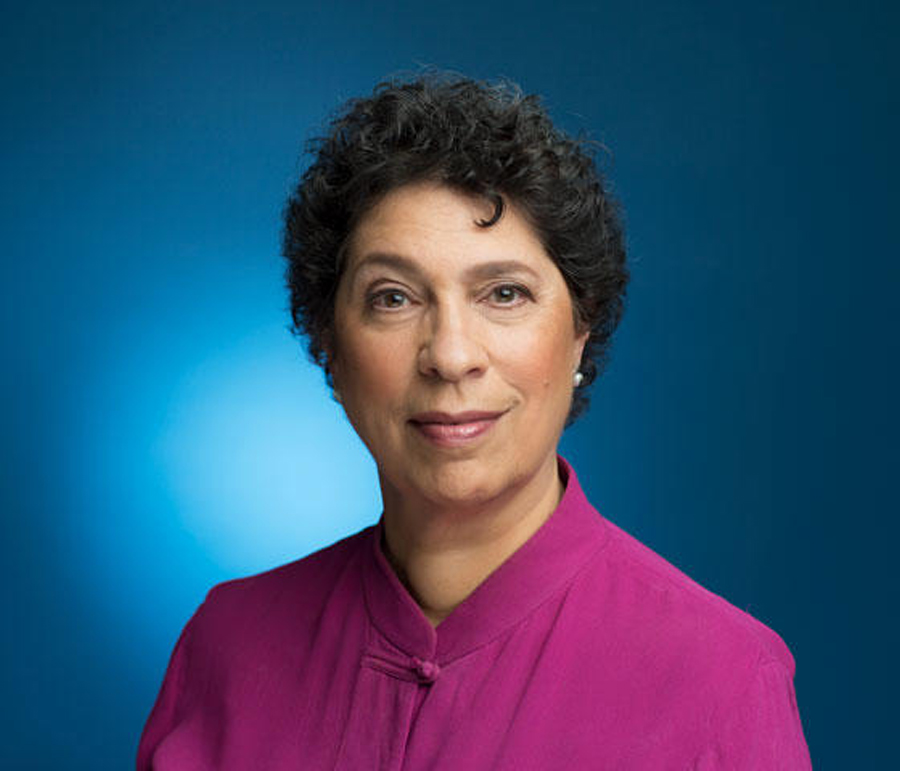
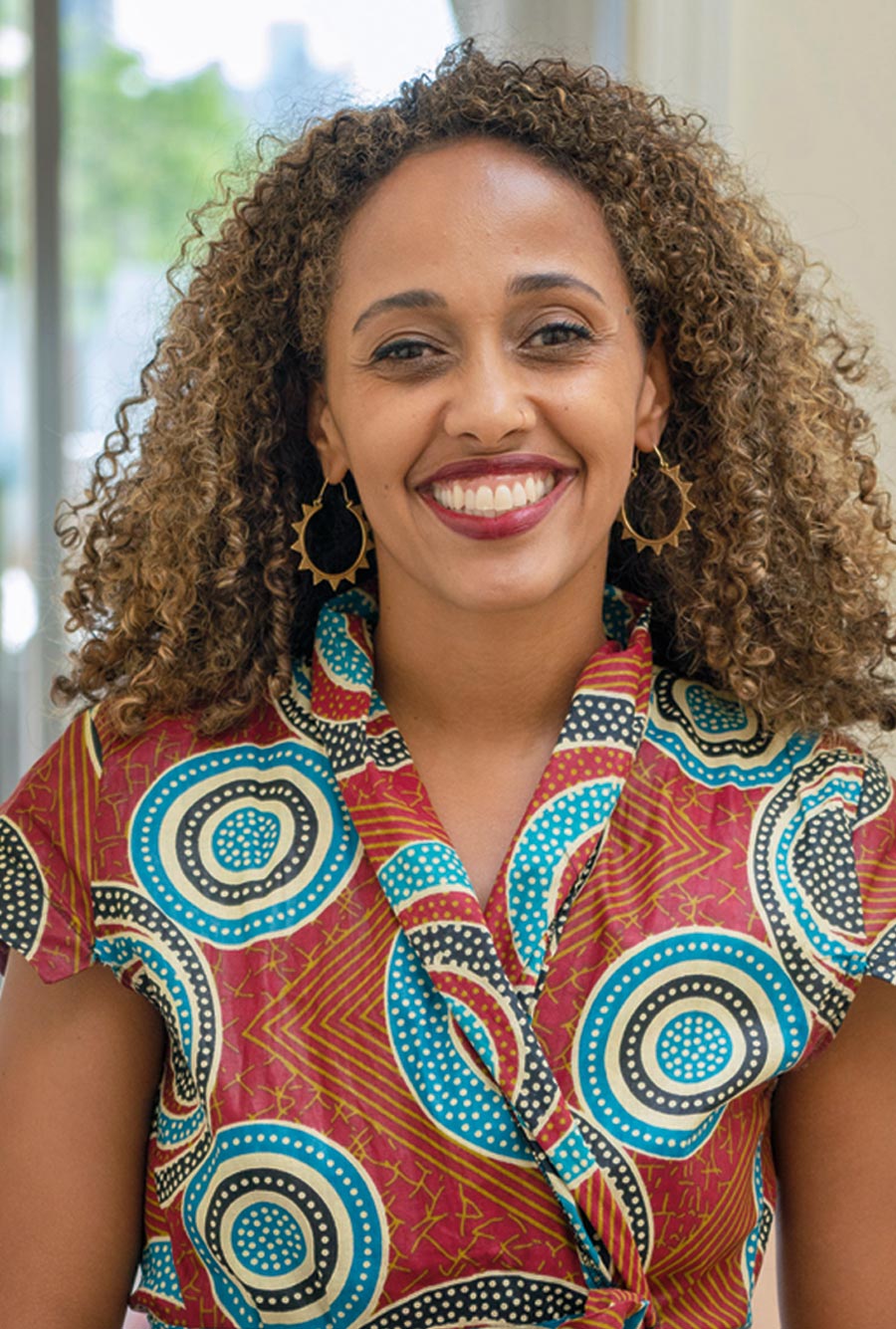
Hoag’s scholarship examines the ways in which practices within the criminal legal system erode people’s constitutional rights and perpetuate racial subordination. She serves on the editorial board of the Amicus Journal and chairs the capital punishment committee of the New York City Bar Association.
She previously served as senior counsel at the NAACP Legal Defense and Educational Fund and as an assistant federal public defender in Nashville, Tenn.
Hoag graduated from Yale College and New York University School of Law, where she was a Derrick Bell Public Interest Scholar and an editor on the Review of Law and Social Change. She clerked for the Hon. John T. Nixon of the U.S. District Court for the Middle District of Tennessee.
“I’ve been fortunate to have already partnered with members of Brooklyn Law School’s faculty, examining ways to transform the criminal legal system,” said Hoag. “I am thrilled to continue this work, and to mentor and guide students as they form their professional identities as lawyers.”
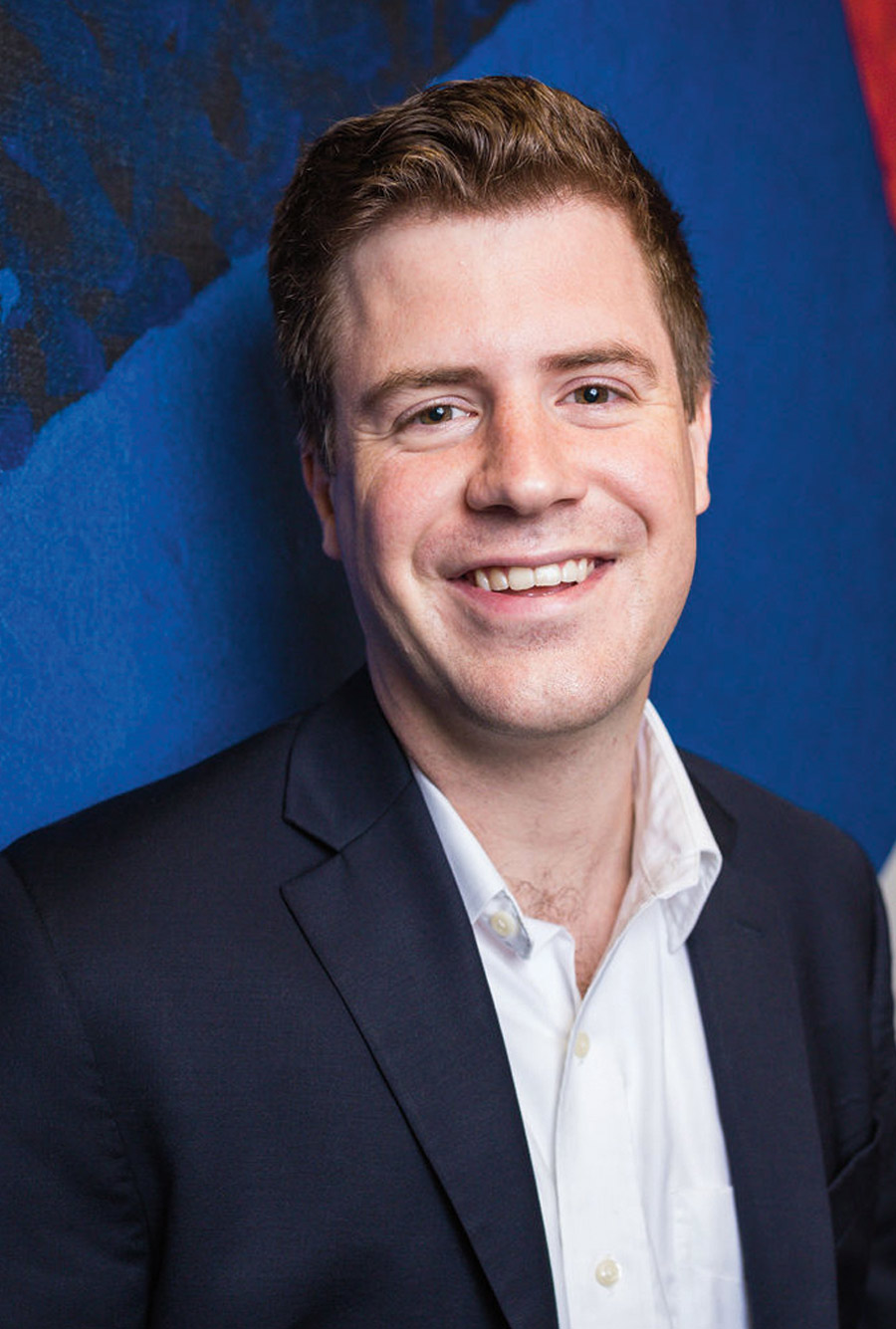
Jennings’s research focuses on corporate governance and compliance, securities regulation, and white-collar crime. He is the creator and host of the Business Scholarship Podcast, where he interviews legal and business scholars, as well as experts in business and other related fields. Jennings was previously a scholar-in-residence at Duke Law School and a law clerk to the Hon. Helene N. White of the U.S. Court of Appeals for the Sixth Circuit. He practiced law at Cravath, Swaine & Moore, where he handled mergers and acquisitions and corporate governance matters, and at Sullivan & Cromwell, where he practiced in criminal defense and investigations and civil litigation.
Jennings earned degrees from Hampden-Sydney College and Duke University School of Law, where he concurrently earned a master’s degree in economics while serving as executive editor of Duke Law Journal.
“I started out practicing law in New York City before going to Stanford and am looking forward to coming back to the heart of our nation’s capital markets,” said Jennings. “As a securities scholar, I want to be where I can have real-world impact, and Brooklyn Law offers great opportunities for me to do just that.”
“From the pandemic to economic inequality to climate change to racial inequity, this moment of crisis will require a strong public policy response,” said Rahman. “I’m humbled to have the opportunity to serve and to help advance policies geared for this moment.”
Rahman’s scholarship has focused on the interactions between law, political economy, economic inequality, and racial exclusion, and on the ways in which law can create more inclusive democracy. He will be on leave from the Law School to serve in the administration.
Since 2018, Rahman has served as president of Demos, a public policy organization. Rahman previously was a visiting professor of law at Harvard Law School and a fellow at both the Roosevelt Institute and New America. He was special advisor to New York City on economic development issues and has worked and consulted for a variety of organizations on issues of democracy reform.
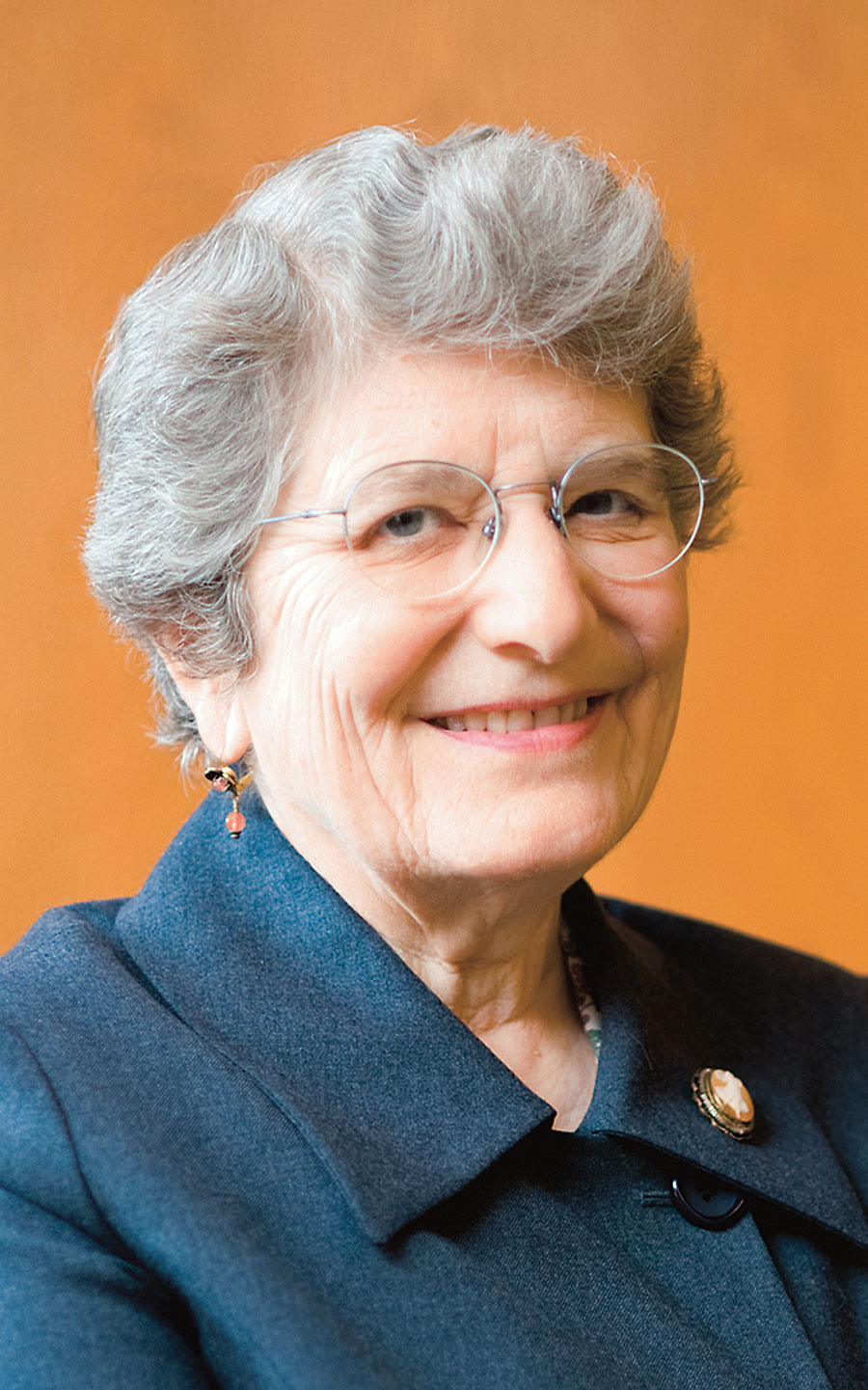
“When the SEC’s remit spread to general corporations, business interests began to aggressively push back against SEC rulemaking,” writes Karmel. “This is a game of raw politics that is a disservice to the SEC, the public, and even regulated business interests.”
Karmel, a member of the Brooklyn Law School faculty since 1985 and co-director of the Dennis J. Block Center for the Study of International Business Law, was the first female commissioner of the U.S. Securities and Exchange Commission and a director of the New York Stock Exchange. She is the recipient of many honors for her scholarship, including a Fulbright Scholar grant to study the harmonization of the securities laws in the European Union. Her extensive published work includes Life at the Center: Reflections on Fifty Years of Securities Regulation (PLI, 2014) and Regulation by Prosecution: The Securities and Exchange Commission Versus Corporate America (Simon & Schuster, 1982).
A symposium, A Life Navigating the Securities Markets: A Celebration of Professor Roberta Karmel’s Work, Teaching, and Mentorship, was held in May 2021 to bring together leaders in the field and to honor her distinguished career. The papers presented will appear in the Brooklyn Journal of Corporate, Financial & Commercial Law.
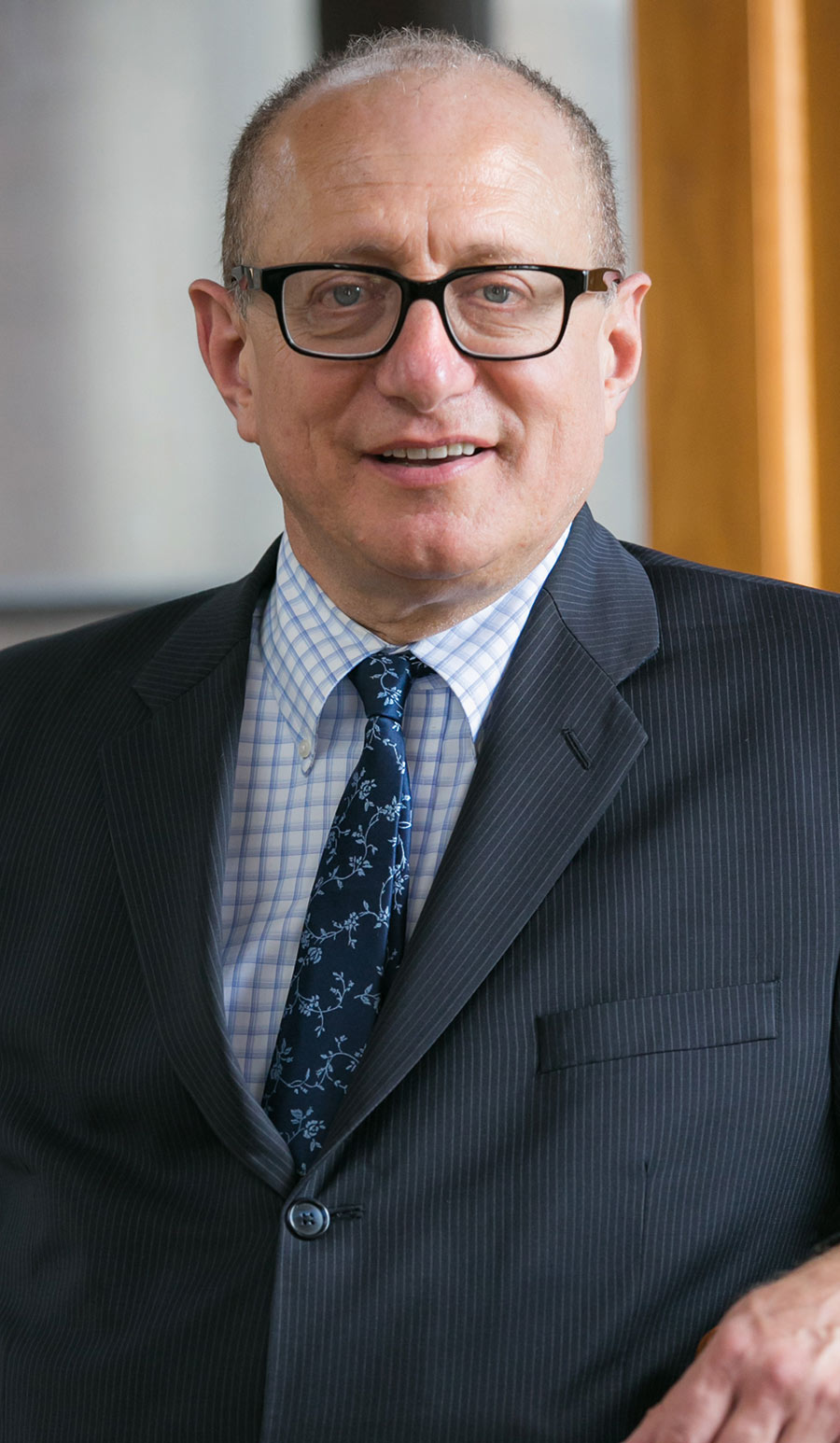
Stein was a full-time faculty member of the Law School until his appointment to the high court of Israel in 2018. He sees his roles as justice and teacher as complementary. “I’ve refined my teaching methods throughout my academic career,” said Stein. “In fact, I believe my teaching experience has positively affected the clarity and internal logic of my written decisions.”
Stein is one of the most frequently cited scholars in the field of evidence. He is the author of five books, two of which are considered pathbreaking in the fields of torts and evidence, and over 80 articles, many of which have appeared in the world’s leading journals. Before joining the Law School in 2016, he held faculty posts at Hebrew University of Jerusalem and Cardozo Law School, and was a visiting professor at Harvard Law School, Yale Law School, Columbia Law School, Oxford University, and the University of Toronto, among others. He holds bachelor’s and master’s degrees in law from the Hebrew University of Jerusalem and a doctorate in law from the University of London.
Stein looks forward to continuing his association with the Law School as it returns to in-person classes. “I had an enjoyable experience teaching in Brooklyn as a full-time professor, and I was missing that part of my work after moving to the bench,” said Stein. “It would be wonderful to rejoin my colleagues—as well as to spend some time in the great city of New York.”
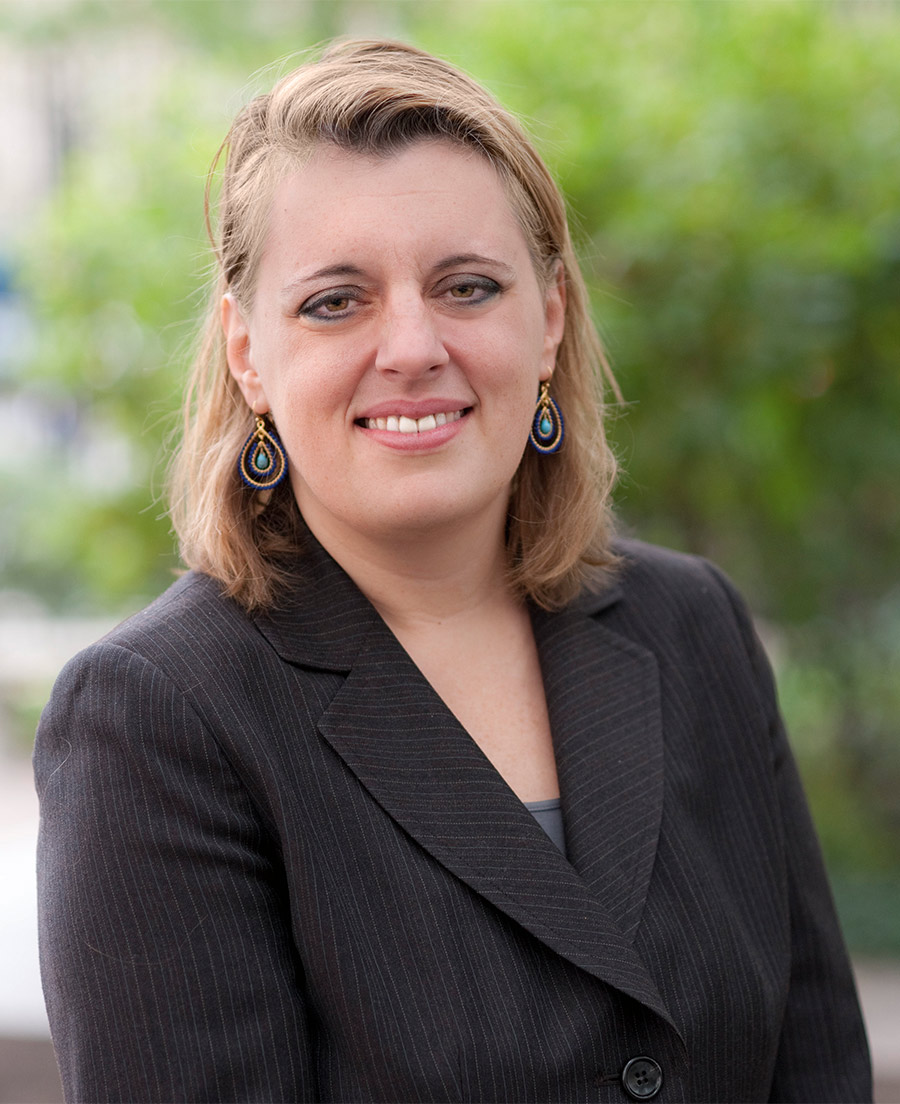
Baer’s forthcoming article, “Law Enforcement’s Lochner” in the Minnesota Law Review, examines the potential convergence of the Court’s corporate personhood jurisprudence and its shifting view of Fourth Amendment privacy. She contends that the fusion of these two areas of law could upend rules that promote the government’s investigation and enforcement of corporate misconduct.
Her analysis of these implications for corporate compliance appears in her chapter in the forthcoming Research Handbook on Corporate Purpose and Personhood (Edward Elgar Publishing, 2021). Baer argues that even if external compliance enforcement by the government changes or erodes, several countervailing factors would likely sustain some version of internal enforcement.
Baer’s work on personhood and procedure follows earlier scholarship on corporate criminal law that straddles the line between corporate regulation and criminal law. Her chapter “Corporate Criminal Law Unbounded” was recently published in the Oxford Handbook on Prosecutors and Prosecutions (Oxford Univ. Press, 2021). She also published an essay, “Three Conceptions of Corporate Crime (and One Avenue for Reform)” in Duke Law School’s journal Law and Contemporary Problems. In these essays, Baer theorizes a series of reforms that would clearly define corporate criminal law’s boundaries and restrain prosecutorial discretion, while enabling the government to hold corporate executives accountable.
Drawing on these and other observations, Baer is currently working on a book, Myths and Misunderstandings of White-Collar Crime (Cambridge Univ. Press., forthcoming 2022). She proposes changes to Congress’s definitions of major white-collar crimes to “make white-collar practice more understandable” and therefore more defensible.
Dean Michael Cahill was included in City and State’s “Law Power 100” for 2021. The list recognizes the leading legal professionals in New York State.
Professor Cynthia Godsoe was named director of the Law School’s Edward V. Sparer Public Interest Law Fellowship Program.
Adjunct Professor Haeyoung Yoon was appointed to President Biden’s COVID-19 Health Equity Task Force.
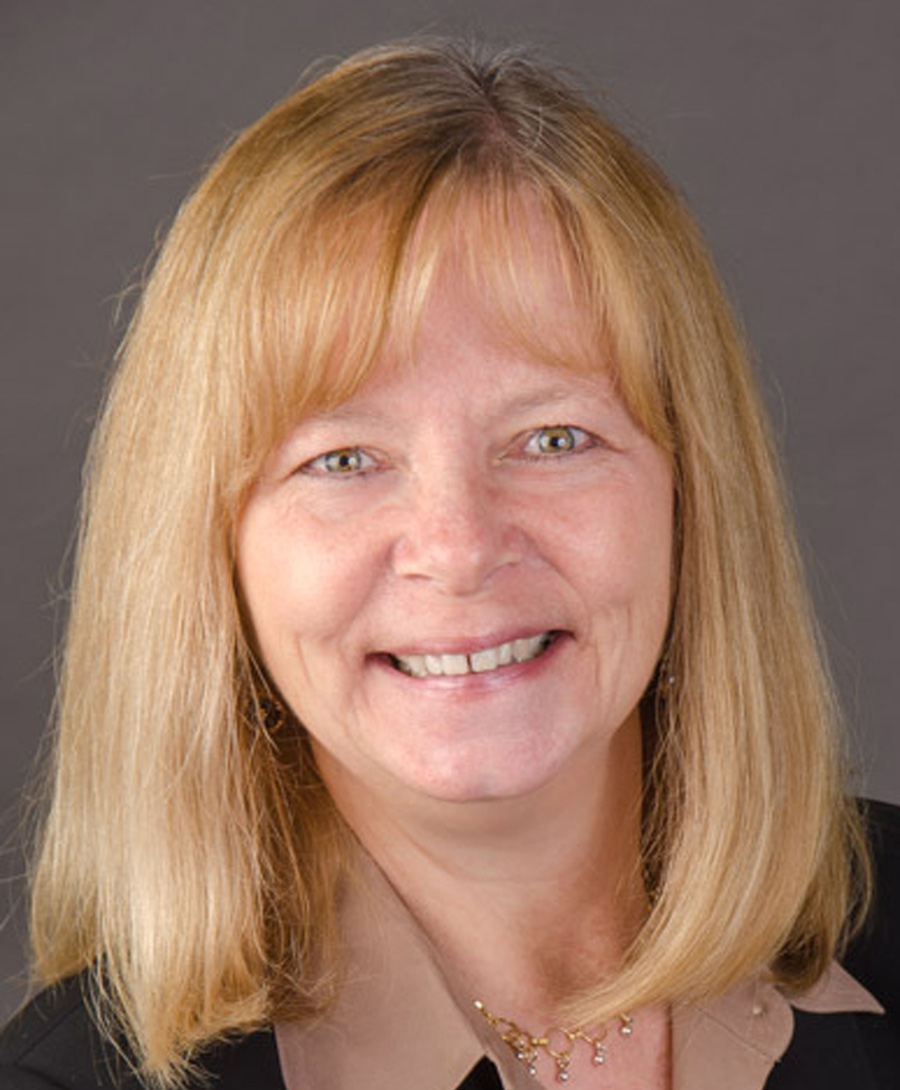
Habitat for Humanity New York City presented Professor Debra Bechtel, founder and director of the Corporate and Real Estate Clinic, with the Sondra Roach Community Partnership Award at the Habby Awards during a Virtual Habitat House Party in November 2020.
The Habby Awards celebrate volunteers and partners who have made a significant impact throughout the past year. The Sondra Roach Community Partnership Award is presented to a community partner who has shown outstanding commitment to the Habitat NYC mission.
After a six-year effort, Bechtel, Corporate and Real Estate Clinic students, and pro bono attorneys from Kramer Levin Naftalis & Frankel’s bankruptcy department helped 16 longtime residents of 2178 Atlantic Avenue in Brooklyn emerge from a foreclosure and a Chapter 11 bankruptcy in control of their building with affordability preserved. The payoff of the foreclosing lender was funded through an $893,000 loan from the Habitat for Humanity NYC Community Fund.
At the Law School, in addition to leading the Corporate and Real Estate Clinic and teaching the Real Estate and Community Development Externship, Bechtel is the deputy director of the Center for Urban Business Entrepreneurship (CUBE). In the spring 2021 semester, she also served as interim director of the Edward V. Sparer Public Interest Law Fellowship Program.
To learn more, visit www.brooklaw.edu/facultyscholarship →
Criminalizing Match-Fixing as America Legalizes Sports Gambling, 31 Marquette Sports Law Review 1 (2020)
Since 2018, when the Supreme Court struck down the law that prohibited states from allowing sports betting, almost every state and Washington, D.C., has enacted, passed, or proposed legal sports betting legislation. These laws prescribe very little in the way of criminal penalties in the event of betting-related manipulation of the underlying athletic competitions. Balsam explores the moral and legal dimensions of honest athletic competition and the importance of defining game manipulation as a crime, and recommends a federal penal provision that makes competition manipulation a separate criminal offense.
There’s Feminism in These Judgments, 61 Boston College Law Review Electronic Supplement I.-112 (2020)
Bernstein identifies common ground between her book The Common Law Inside the Female Body (Cambridge Univ. Press, 2018) and Feminist Judgments, a movement that looks to rewrite published judicial decisions to steer their results or their rationales in a feminist direction. This article was featured in one of two symposium issues dedicated to Bernstein’s book since its publication, following one published by Northwestern University Law Review in 2019.
Buyer Beware: Variation and Opacity in ESG and ESG Index Funds (with Anne Tucker), 41 Cardozo Law Review 1921 (2020)
Industry leaders, critics, and commentators all herald a shift in investing and corporate governance to more broadly consider environmental, social, and governance (ESG) factors. Brakman Reiser and Tucker examine a sample of ESG and traditional funds from 2018–2019, documenting great variation in their investment strategies. They investigate the supply- and demand-side drivers fueling ESG market growth, and explore mechanisms to better match investors to high ESG-committed funds.
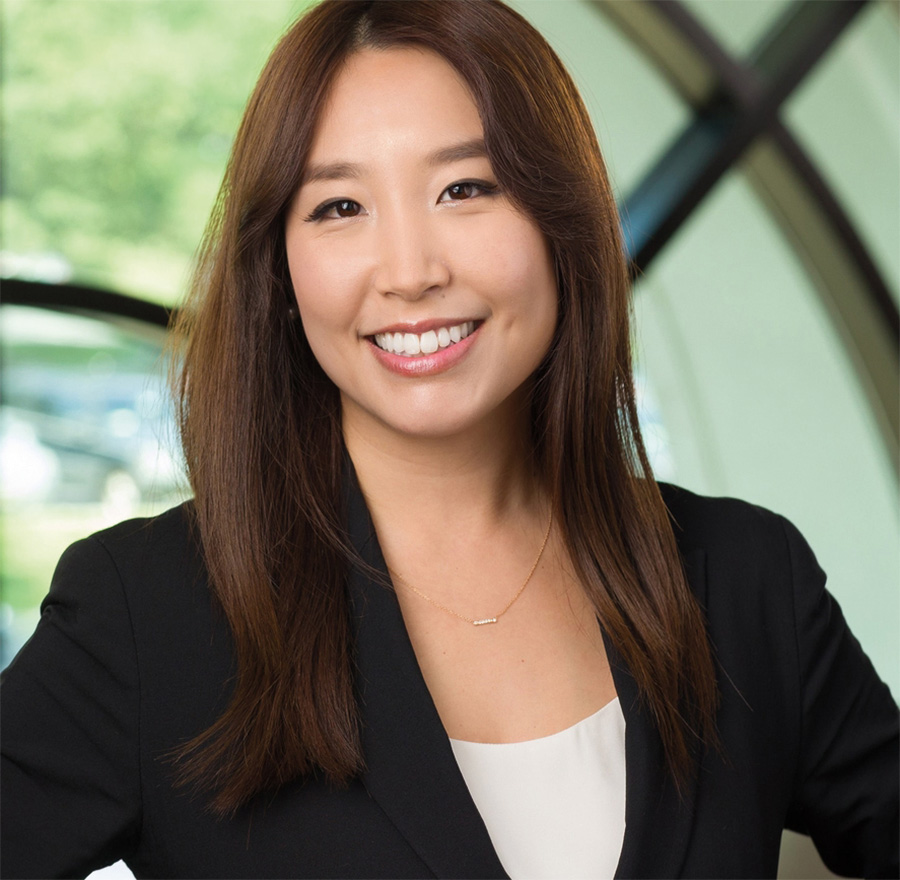
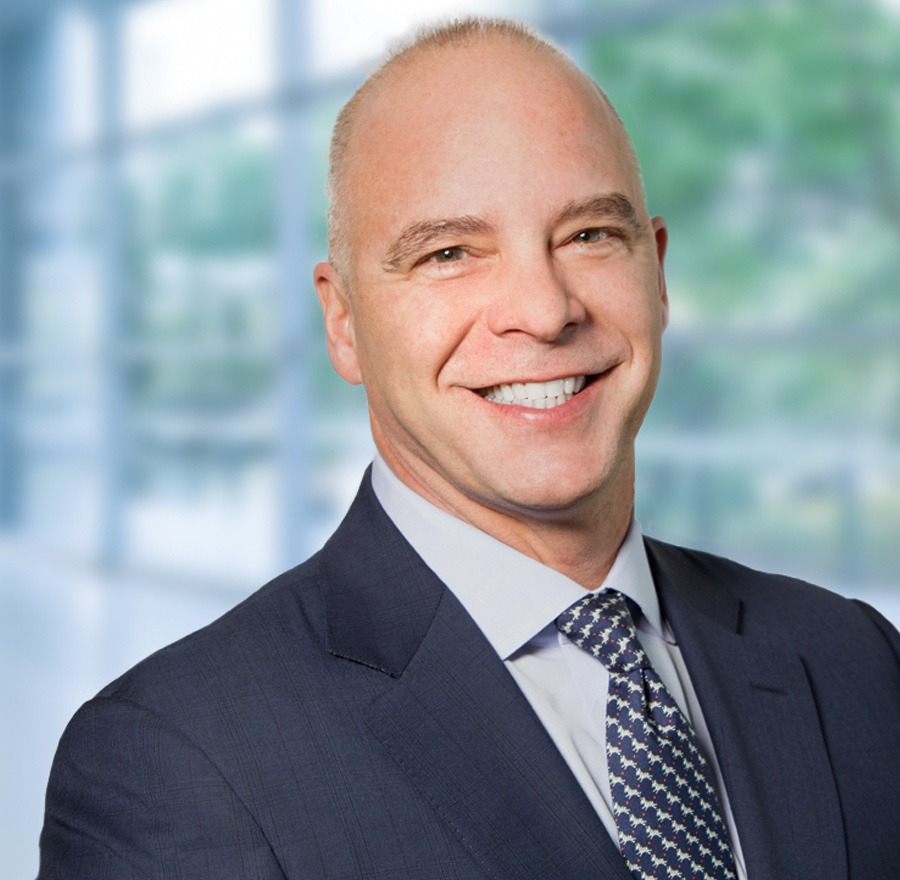
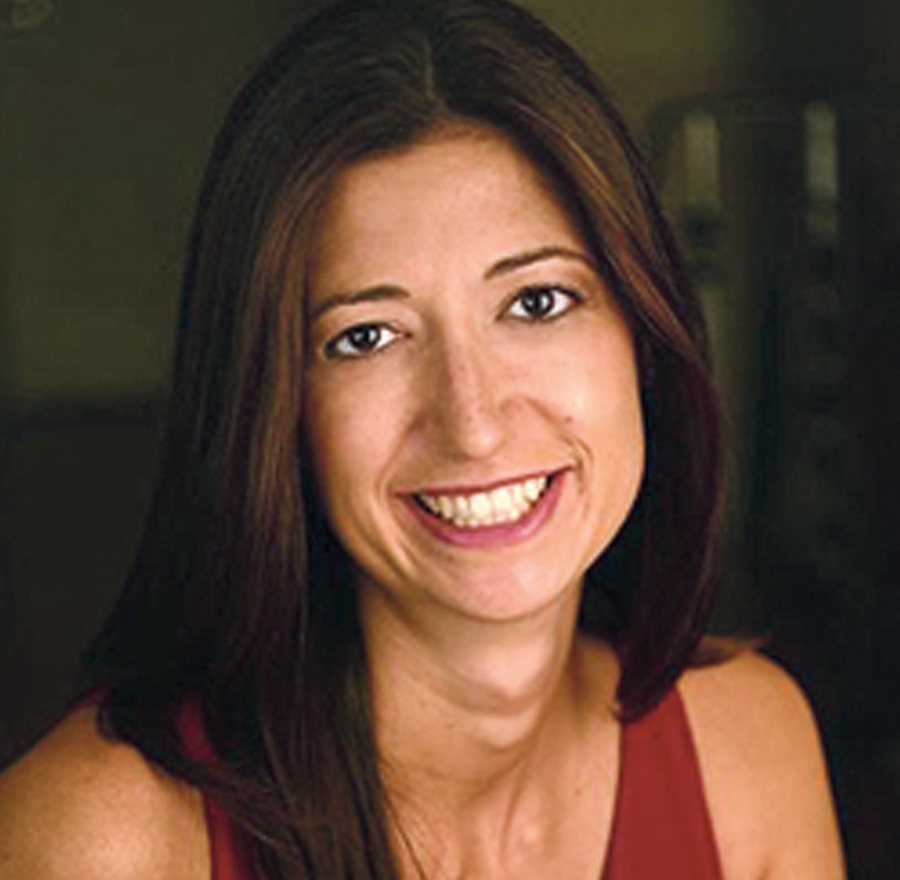
The panelists included Jenny Chung ’14, associate at Chiesa Shahinian & Giantomasi and president of the Asian Pacific American Lawyers Association of New Jersey (APALA-NJ); Kevin Lauri ’90, chair at Jackson Lewis; and Caroline Werner ’97, director of CLW Solutions and a faculty member at New York University School of Social Work. Meeka Bondy ’94, a member of the Women’s Leadership Circle, led a Q&A with the panelists. Karen Porter, the Arthur Pinto and Stephen Bohlen Associate Dean for Inclusion and Diversity, moderated the event.
On leading APALA-NJ’s response to the increase in violence against Asian Americans, Chung said, “With so many people calling me at all hours to give me their opinions on how to do everything and anything, I realized I had to focus and do what was, in my view, best for our group.”
Porter stressed the importance of preparing attorneys for the mantle of leadership. “Although lawyers have always assumed the role, the skills of leadership have not been an explicit part of our education,” she said. “Our task in the legal profession is not only to prepare lawyers for leadership, but to inspire them to seek roles of ultimate responsibility, and to do so in a way that fosters their own well-being and that of others.”
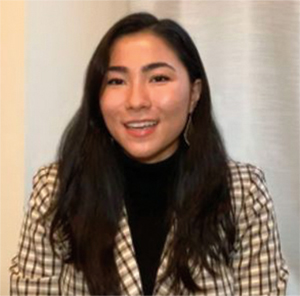
“Through creating these one-on-one relationships, the Mentor Program provides students with a valuable link between the law school experience and the practicalities of a legal career,” said Michael Tenenhaus, associate director of career and professional development.
“The fact that we were able to make this many matches this year during an unprecedented pandemic is a true testament to the dedication of our alumni community and their desire to pay it forward,” said Caitlin Monck ’02, director of alumni engagement and special programs.
Among this year’s mentor pairings are David Bayer ’13, associate labor relations counsel for the National Football League and a mentor since 2015, and Jamie Kaplan ’22, currently a legal intern with the New York City Football Club, who connect via monthly virtual meetings.
“David has given me great advice and perspective on legal experience at a firm and working with sports teams, as well as about law school and my career,” said Kaplan.
For Bayer, himself a former mentee, the mentorships are about giving back to the Law School community, but also about building meaningful relationships. “I really enjoy speaking to students and learning about their goals and interests,” he said. “I have former mentees who have become friends.”
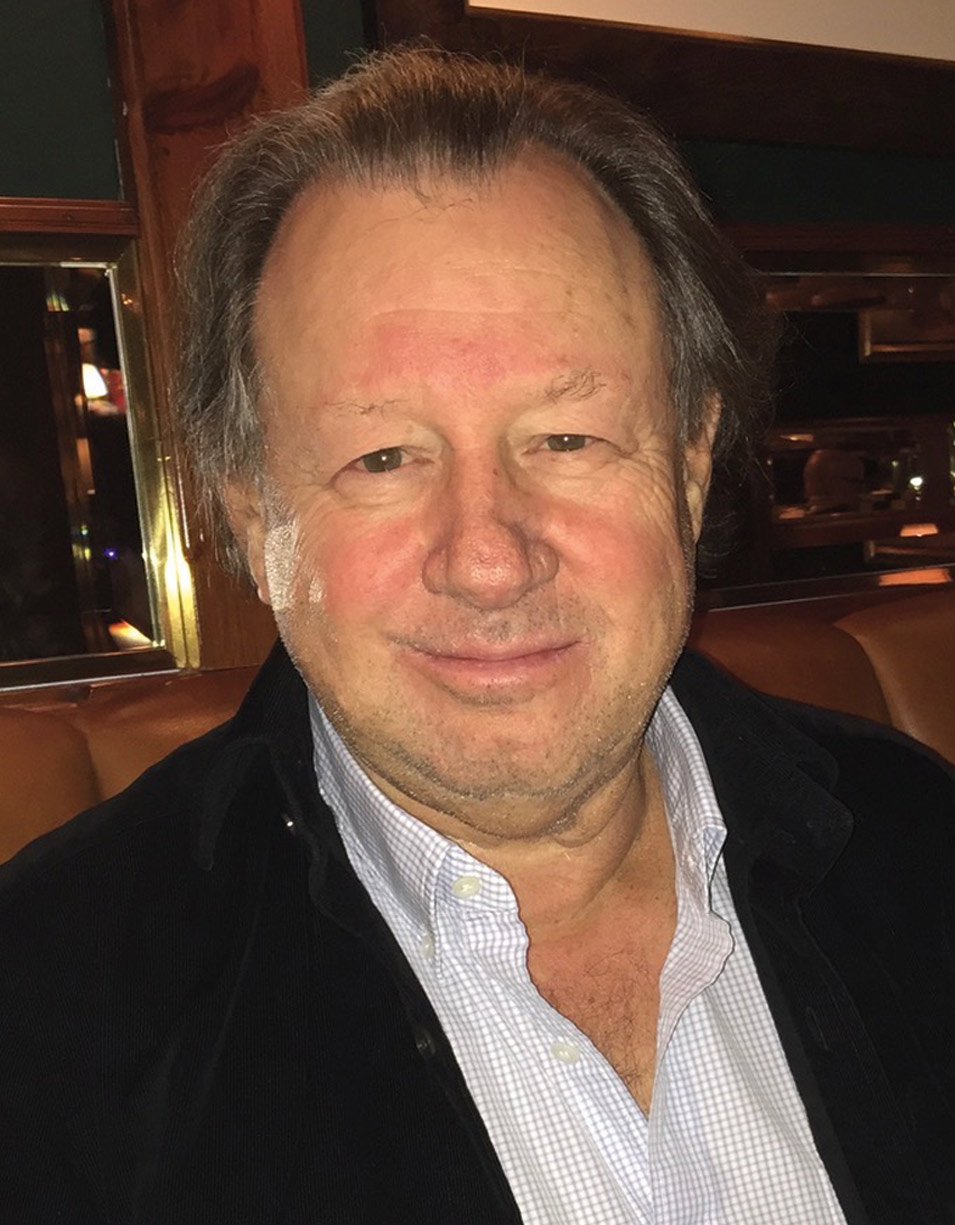
“Most people thought I was not of sound mind to take over a failing company, but I wanted to run my own show,” said Rosen. “When you’re advising clients, it’s their movie. People depend on you for advice and guidance, but it’s still their movie. Personally, I got tired of being in other people’s movies.”
Since selling Ticketmaster and leaving the company in 1997 to start exciting new ventures, Rosen has also explored ways to share his passion for entrepreneurship with the next generation. In 2021, he created, through the Fredric D. Rosen and Nadine Schiff Family Foundation, the Seymour and Hannah Rosen Endowed Scholarship, which will enable Brooklyn Law School students to follow in his footsteps.
Rosen’s scholarship has unique criteria meant to target students who he believes have what it takes to run their own businesses. The recipients will be first-generation law students, like Rosen, with financial need who have shown a demonstrated interest in entrepreneurship. Additionally, the eligible students will place in the middle of their class in academic performance.
“The top students are going to get there anyway,” said Rosen. “The middle are all works in process. Good grades are not the primary test for ultimate success—creativity, energy, humor, and ambition must also be factored in.”
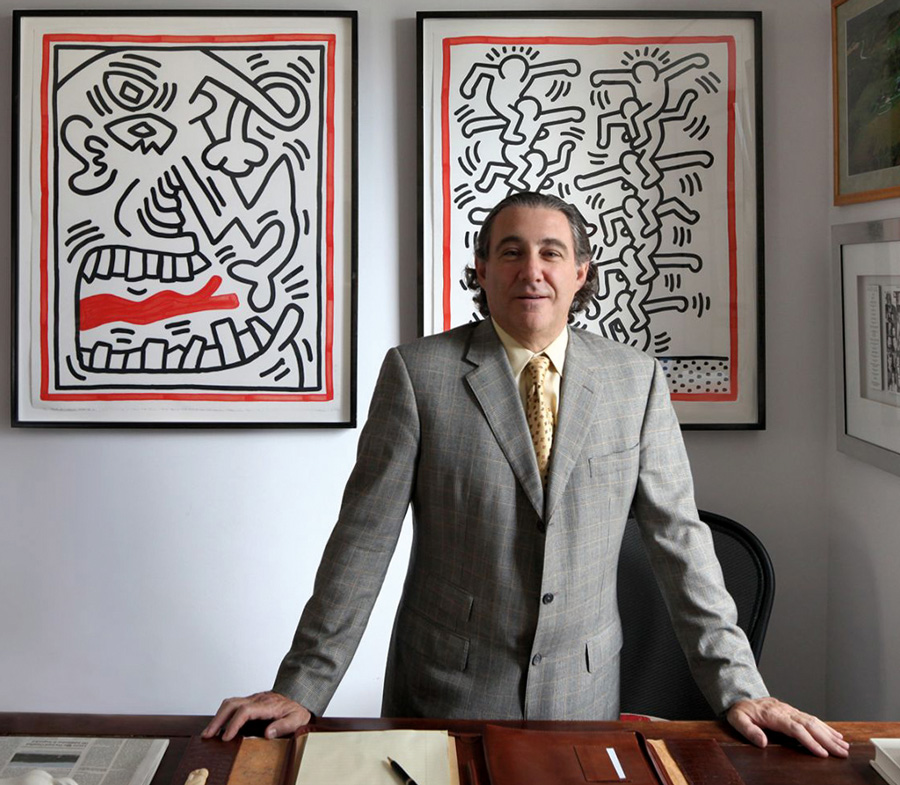
Born in 1925, Bernard Mirotznik was a decorated veteran of the Army Air Corps, stationed in the United Kingdom during World War II. “He deeply believed in the value of education,” said his son. “It inspired my siblings and me—all lawyers—and gave us the opportunity to succeed.”
Bernard Mirotznik’s parents were immigrants from Russia who owned a chicken market in lower Manhattan. “My father was a hardworking and highly respected man,” the younger Mirotznik said. “[But] it was only because of the G.I. Bill that my father could go to college.”
He attended Brooklyn Law School after graduating from New York University. He later established his practice in East Meadow, N.Y. Actively engaged in his community, he was a member of the Nassau County Bar Association and the Jewish Lawyers Association. He was involved in local politics, and performed volunteer legal work for the 452nd Bomb Group Association for more than 30 years.
“My father had humility, always held his head high, and was professionally independent. It led me to follow in his footsteps,” said Charles Mirotznik. “He was a great mentor. I hope that spirit is passed on here.”
 Whatever your motivations or ability to give, you have many options to create an enduring impact. To learn more about how you can help the next generation of Brooklyn Law School students, contact Caitlin Monck ’02, director of alumni engagement, at caitlin.monck@brooklaw.edu
Whatever your motivations or ability to give, you have many options to create an enduring impact. To learn more about how you can help the next generation of Brooklyn Law School students, contact Caitlin Monck ’02, director of alumni engagement, at caitlin.monck@brooklaw.edu 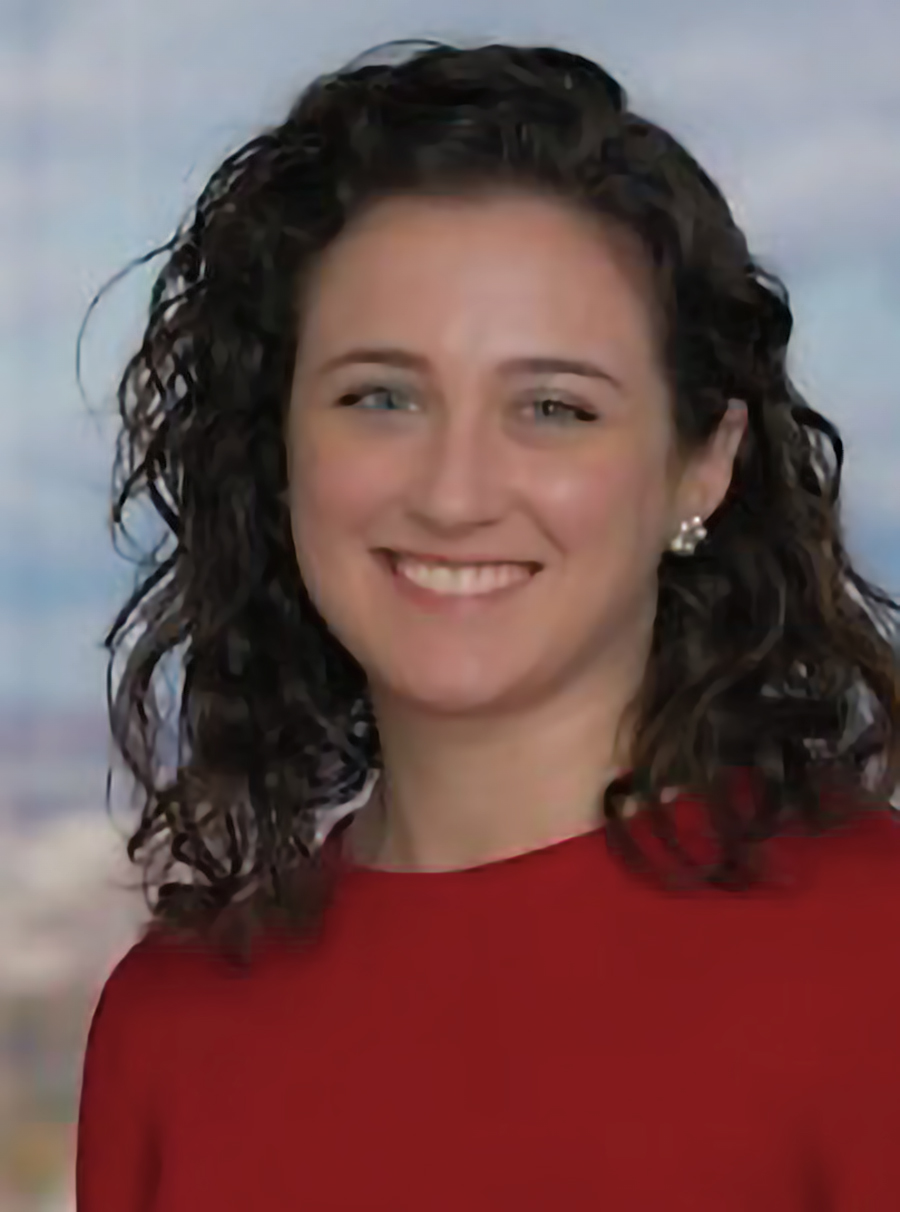
Sasha Linney ’11, executive committee member of the Alumni Board and current associate general counsel for GoldenTree Asset Management, has generously made a $25,000 unrestricted gift to the Annual Fund. Linney’s gift will help fund the Law School’s urgent and immediate needs, including financial aid for students in need, support for teaching and research, and sustained support of dynamic clinical programs and initiatives.
“I was a beneficiary of the Clare R. Petti Scholarship, the Judge Shirley Wohl Kram Memorial Scholarship, and a Sparer Fellowship when I was at law school, and they helped me tremendously,” said Linney. She was also a former Moot Court Honor Society member and managing editor of the Brooklyn Law Review.
Under the mentorship of Professor Michael Gerber, bankruptcy law was at the center of Linney’s legal education. As an Edward V. Sparer Public Interest Law Fellow, she interned for the New Economy Project, helping the nonprofit fight abusive lender practices. As a corporate associate at Debevoise & Plimpton, she worked on projects that included the American Airlines Chapter 11 filing and restructuring. She then joined GoldenTree in 2016, a firm focusing on distressed products and high-yield bond opportunities.
Linney recognizes the financial challenges for some young alumni to give back early in their career. “Giving back is sometimes hard to imagine when you still have loans,” she said. “But I have such loyalty to the Law School and wanted to show my appreciation. The smallest amount you can give comes back to you.”
To support the Annual Fund, go to www.brooklaw.edu/give or email Kamille James Ogunwolu, director of individual giving, at kamille.james@brooklaw.edu.
Stanley M. Grossman was awarded a Lifetime Achievement Award by the New York Law Journal. Grossman, a senior counsel at Pomerantz, focuses his practice on securities litigation.
Alan E. Weiner published an article, “Becoming Successful in Today’s Professional World,” in the CPA Journal.
Michael Rikon, partner at Goldstein, Rikon, Rikon & Houghton, was inducted into the 2021 Hall of Fame by the International Association of Top Professionals.
James Grossman was selected by his peers for inclusion in the 27th edition of The Best Lawyers in America for his expertise in eminent domain and condemnation law. He is a partner at Barclay Damon.
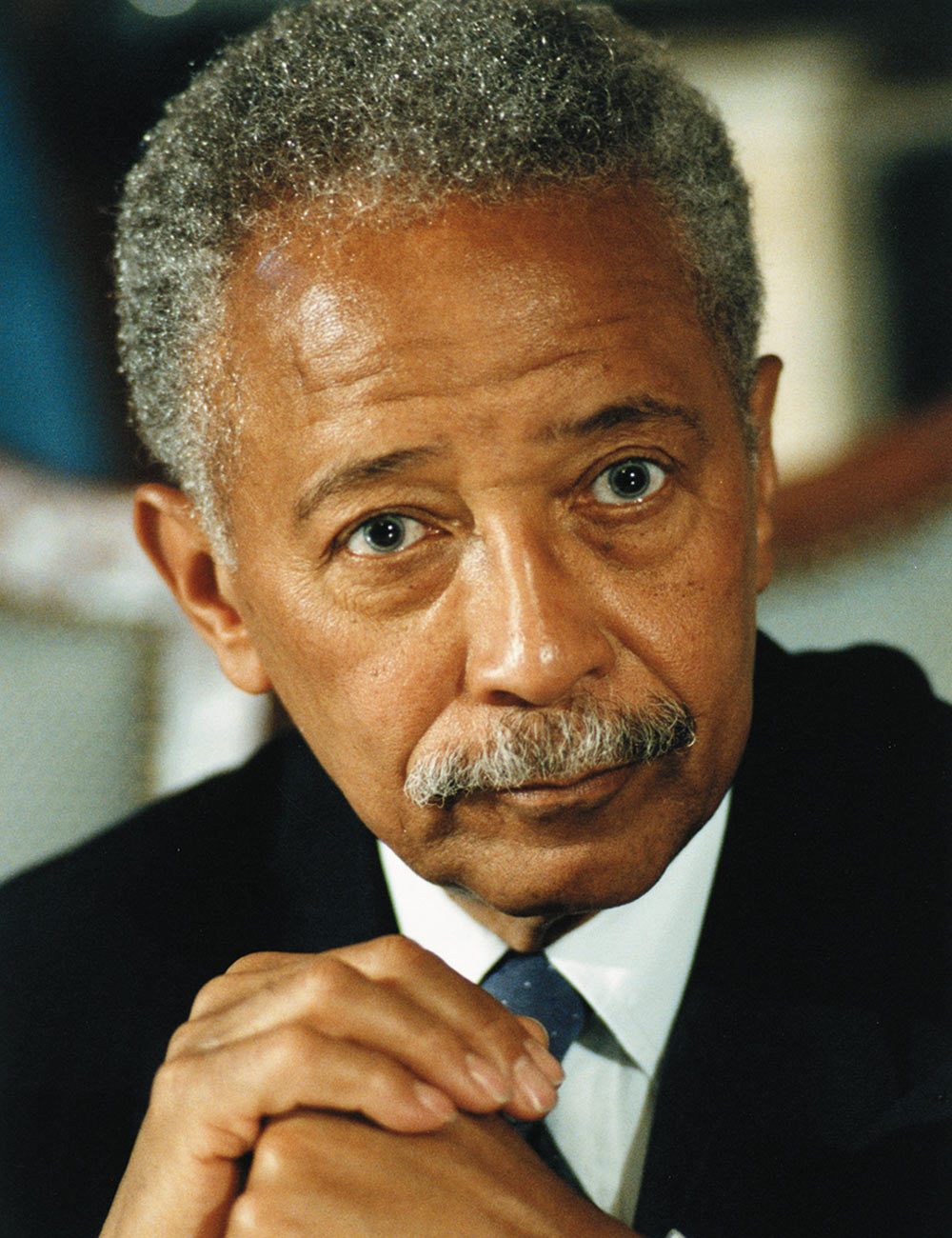
As mayor, Dinkins instituted a comprehensive plan to reduce crime and expand opportunities for the children of New York. His administration, the most diverse in the city’s history, initiated the revitalization of Times Square and established cultural staples such as Fashion Week, Restaurant Week, and Broadway on Broadway. It also successfully negotiated to keep the U.S. Open Tennis Championships in New York for the next 99 years.
At the Law School, Dinkins was a longtime member of the Alumni Association Board of Directors. He was honored as Alumnus of the Year in 1990 and was named an Icon of the Law School in 2015. Dinkins also was an active member of the Black Law Students Association, which, in 2018, presented him with the inaugural David N. Dinkins Award.

Closing


Launched in 2018, Substack promises journalists and other writers independence and the opportunity to create their own mini media empires. Readers subscribe to their favorite writers and, in return for a small monthly fee, are emailed periodic newsletters. The platform is gaining traction. It has received funding and support from Y Combinator, a startup accelerator whose portfolio includes such household names as Airbnb, Stripe, and Dropbox. Journalists are also embracing the model, and are leaving more established publications such as Buzzfeed, Vox, Rolling Stone, and the New Yorker to start newsletters on the platform.
While it has long been argued that the news business is due for a remodeling, is Substack in the business of news? Not according to its co-founder and CEO, Chris Best. “I think our asset is the platform that we’re creating,” said Best in an interview with The Verge. “We aren’t a media company… The whole point of Substack is that, as a writer, you can use Substack to go independent, and we are spawning a million media companies.”
